-
Russia reportedly helping North Korea build warships, but questions over seaworthiness remain after failed launch
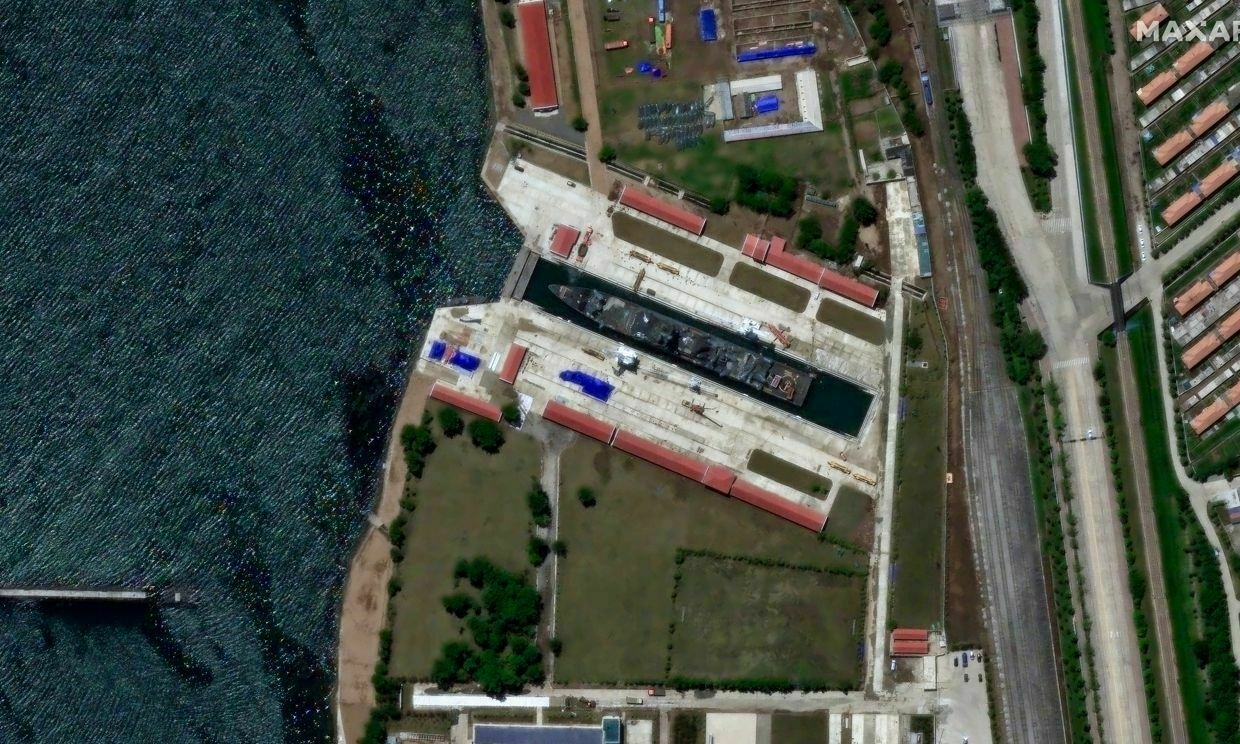
Russia appears to have provided North Korea with extensive assistance in designing and rapidly constructing two advanced destroyers, the most modern in Pyongyang’s fleet, the Wall Street Journal (WSJ) reported on June 25.
The destroyers, part of the new Choe Hyon class, were built in just over a year — an unusually fast timeline that analysts say would have been impossible without foreign support.
Satellite imagery and launch footage suggest a clear Russian design influence, including the distinctive bow and stern structure found on Russia’s Admiral Grigorovich-class frigates.
One of the destroyers, launched in April, was followed in May by a failed launch during which the second vessel capsized in front of North Korean leader Kim Jong Un.
The incident prompted outrage from Kim, who condemned the failed launch as a “criminal act” and placed blame on several state institutions, accusing relevant officials of “irresponsibility” which “could not be tolerated,“North Korean state-run Korean Central News Agency (KCNA) reported.
According to the agency, a malfunction in the launch mechanism caused the stern of the 5,000-ton destroyer to slide into the water too early, while the rest of the ship remained stuck.
Damage to the bottom of the ship threw it off balance, and the bow failed to move, resulting in “a serious accident."
The wreck was recovered in early June.
Mike Plunkett, a senior naval analyst at Janes, an open-source intelligence company, told the WSJ that the ships appeared to have signs of Russian involvement. He pointed to identical hull lines and profiles where the hull connects to the side, between the Korean and Russian vessels.
One of the destroyers appears to be equipped with the Russian Pantsir-M system, marking the first time this advanced air-defense system has been seen on a non-Russian warship.
Plunkett noted that the ventilation grilles for the engine room were sealed with metal plates, indicating the ships might not yet have engines.
The news comes amid deepening military ties between Russia and North Korea. According to a May 29 report by the Multilateral Sanctions Monitoring Team (MSMT), Pyongyang shipped up to 9 million artillery shells and at least 100 ballistic missiles to Russia in 2024 alone.
In fall 2024, North Korea’s role in Russia’s war grew as it sent thousands of troops to Russia’s western border to assist in repelling a Ukrainian incursion.
The partnership has also expanded into drone cooperation. On June 9, Ukraine’s military intelligence chief, Kyrylo Budanov, said the two nations had agreed to begin production of Iranian-designed Shahed-136 drones on North Korean territory.
‘Alarms went off everywhere’ — Explosions reported in Moscow, Russia claims 50 Ukrainian drones downed across countryExplosions were reported in Moscow overnight on June 26, prompting airport closures, as Mayor Sergey Sobyanin claimed that two drones were shot down.The Kyiv IndependentVolodymyr Ivanyshyn
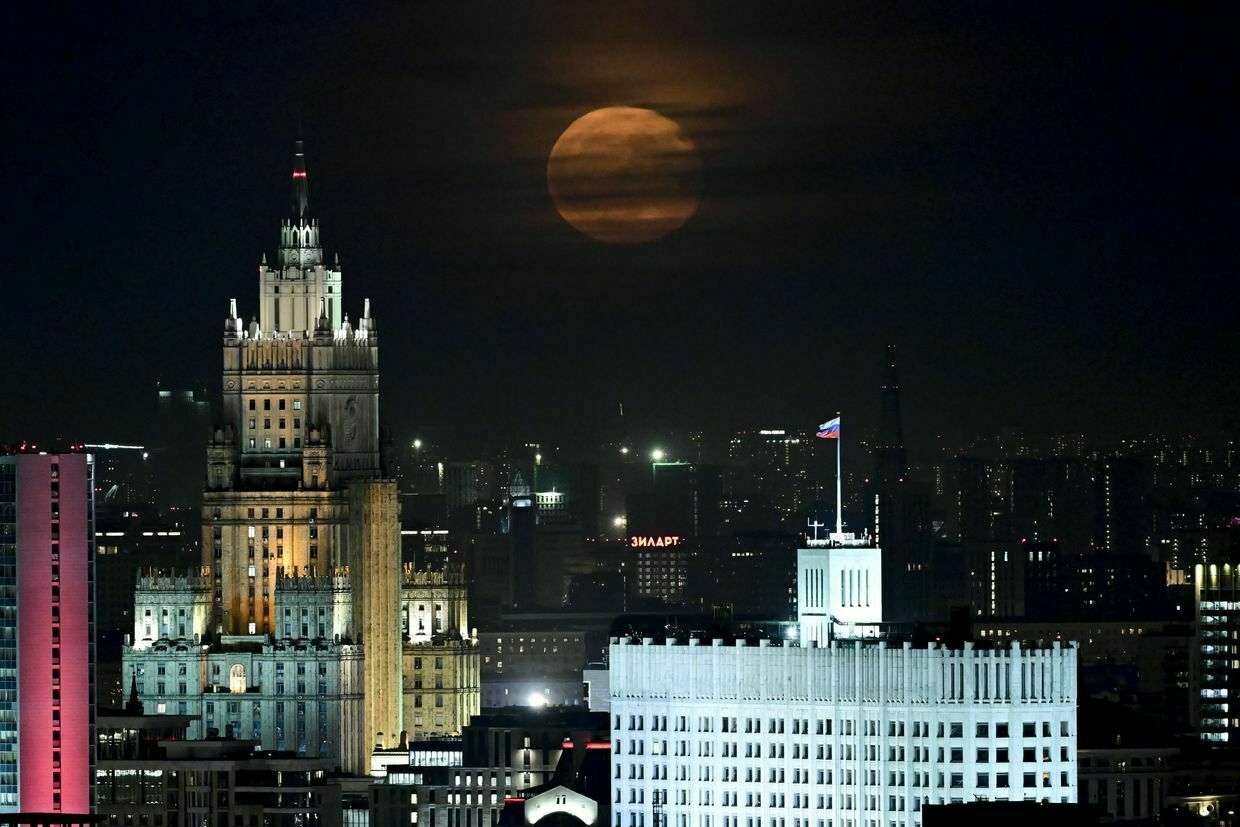
-
Taking lessons from Ukraine war, Trump's US defense budget prioritizes drones, missiles
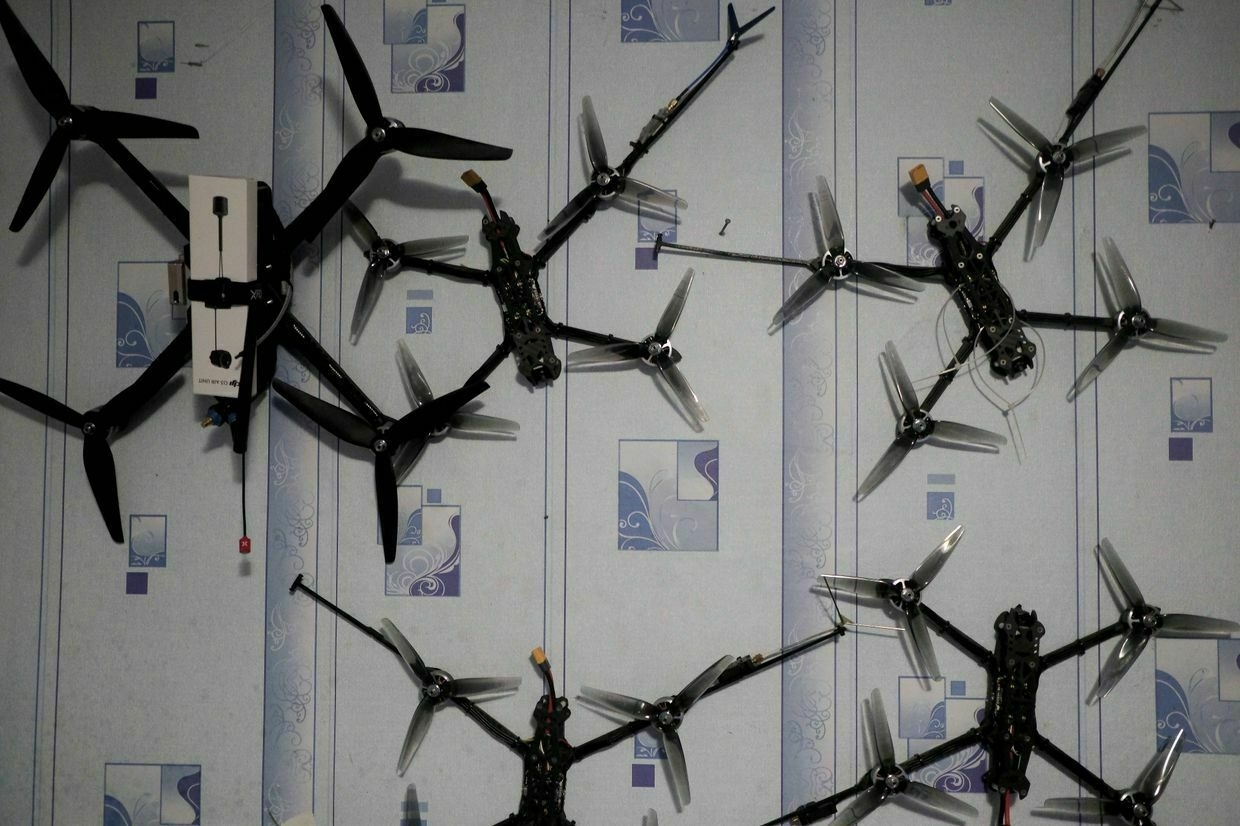
U.S. President Donald Trump’s proposed defense budget for fiscal year 2026 prioritizes drones and long-range missile systems over traditional air and naval platforms, Reuters reported on June 26.
The $892.6 billion request maintains the overall funding level from 2025 but shifts spending toward innovation and high-tech systems. The budget includes increased investment in small drones, a response to their proven battlefield value in Ukraine.
The proposal slashes procurement of key legacy systems. Trump’s plan includes just 47 F-35 fighter jets, down from the 68 planned by the Biden administration, and only three warships.
The Pentagon will continue to purchase Joint Air to Surface Standoff Missile – Extended Range and Long Range Anti-Ship missiles for the U.S. Air Force. Fewer Precision Strike Missiles, meant to replace the ATACMS, are included in the main request.
The proposal also includes a 3.8% increase in military salaries, while decommissioning aging and costly aircraft and ships. The Navy’s civilian workforce will be reduced by more than 7,000 employees to free up resources for technology and modernization.
The shift from traditional fleet expansion indicates a move towards asymmetric, precise warfare with drones playing a crucial battlefield role.
Ukraine’s experience has informed several elements of the request. Since Russia’s full-scale invasion in 2022, Kyiv has expanded drone production across all domains — air, land, and sea — with plans to manufacture 30,000 long-range drones in 2025.
Ukraine’s hybrid strike platforms, such as the Palianytsia and Peklo missile-drones, have drawn international attention for their range and versatility.
Putin insists the Russian economy is fine, but Kremlin officials say otherwiseIn a rare public sign that all is not well in Russia, two high-ranking Moscow officials last week issued separate warnings about the state of the country’s economy. Russian Central Bank Governor Elvira Nabiullina and Economy Minister Maxim Reshetnikov both highlighted that amid the Kremlin’s full-scale war against Ukraine, the tools Moscow once relied on to maintain wartime growth are nearly exhausted. Almost immediately, Russian President Vladimir Putin on June 20 dismissed the concerns, clai The Kyiv IndependentTim Zadorozhnyy
The Kyiv IndependentTim Zadorozhnyy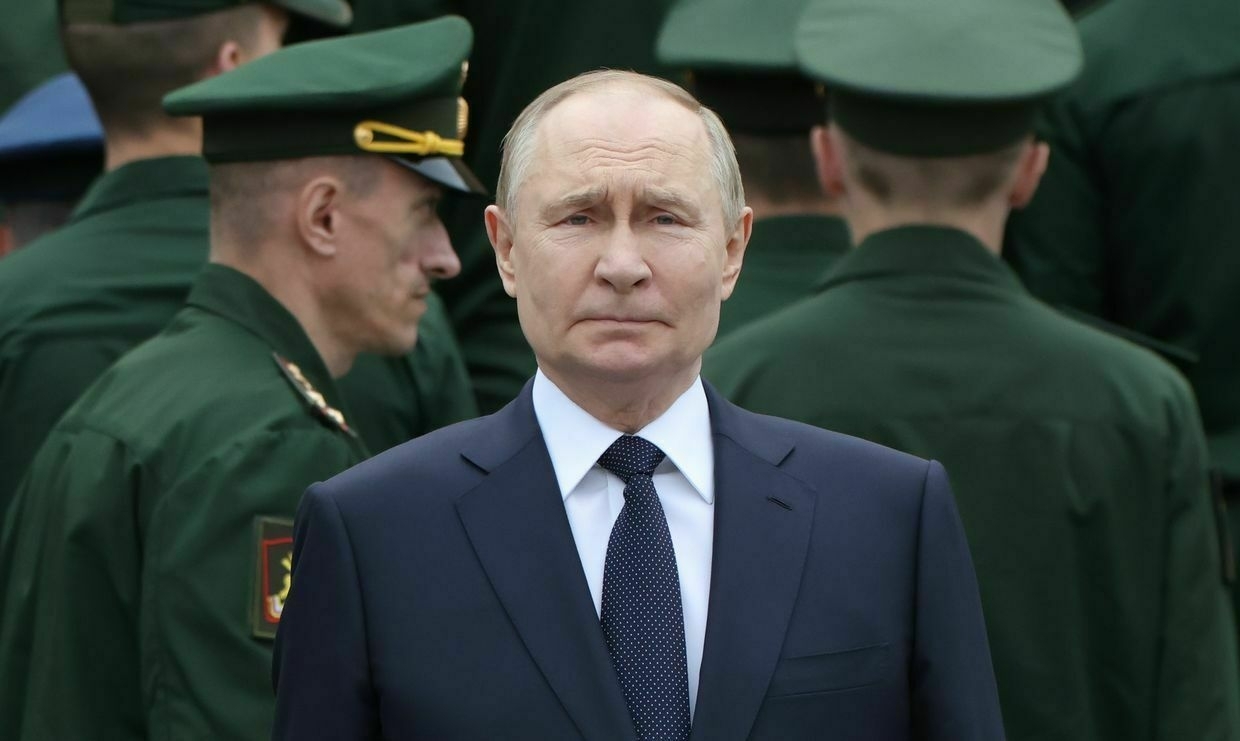
-
Ukraine to receive 20 new Rheinmetall Ermine vehicles — here's what they can do

The Dutch Defense Ministry will finance the production of 20 Ermine ground vehicles for Ukraine, German defense manufacturer Rheinmetall announced on June 25.
The contract, signed during the NATO summit in The Hague, marks the first order for the new-generation tactical platform. Ukraine will become the first country in the world to receive the Ermine.
The Ermine, developed by Rheinmetall Defence Nederland, is designed primarily for front-line evacuation missions.
The light buggies provide fast, maneuverable transport for wounded personnel in combat zones. Rheinmetall said the deliveries are expected to begin in 2026.
According to Rheinmetall, the Ermine is a “lightweight tactical system that combines the robustness of a diesel unit with many advantages of an electric drive."
It’s a modular system that comes in four configurations — 4x4 quad, 4x4/6x6 buggy, or Unmanned Ground Vehicle (UGV).
The Ermine combines a diesel engine with an electric motor that allows for what Rheinmetall describes as “Silent Move & Silent Watch,” and has a range of up 1,200 kilometers, and can carry up to a tonne.
“The electrical powertrain makes the Ermine almost silent. It is capable of driving up to 50 km silently through heavy terrain and up to 100 km on the road,” the company said.
“The system offers its users significant tactical advantages in avoiding enemy reconnaissance."
The electrical engine can even provide charging points for soldiers out in the field.

An Ermine ground vehicle developed by Rheinmetall Defence Nederland mainly for front-line evacuation missions (Rheinmetall) On June 24, Dutch Prime Minister Dick Schoof presented a new military aid package for Ukraine, including 100 drone radar systems, front-line vehicles, and 80 million euros (over $90 million) for the drone initiative.
The NATO summit concluded on June 25 with a joint pledge by member states to raise defense spending to 5% of GDP by 2035. The updated target reflects shifting priorities within the Alliance as the war in Ukraine drags into its fourth year.
Unlike in previous years, the 2025 summit communique did not include an explicit condemnation of Russia’s invasion. Still, the final statement reaffirmed support for Ukraine and said assistance to its defense industry will count toward the new spending benchmark.
President Volodymyr Zelensky met with U.S. President Donald Trump during the summit, where the two leaders discussed battlefield developments, Kyiv’s need for additional air defense systems, and the potential for co-production of drones.
“They (Ukraine) do want to have the anti-missiles, as they call them, the Patriots, and we’re going to see if we can make some available,” Trump said. “They are very hard to get. We need them too. We are supplying them for Israel, and they are very effective."
Trump’s remarks signal a potential boost to Ukraine’s air defense capabilities, which have come under increasing strain amid intensifying Russian attacks.
Meloni tells Trump US must show ‘same determination’ on Ukraine as with Iran“I said the same determination is needed to achieve two other important ceasefires,” Meloni said.The Kyiv IndependentTim Zadorozhnyy
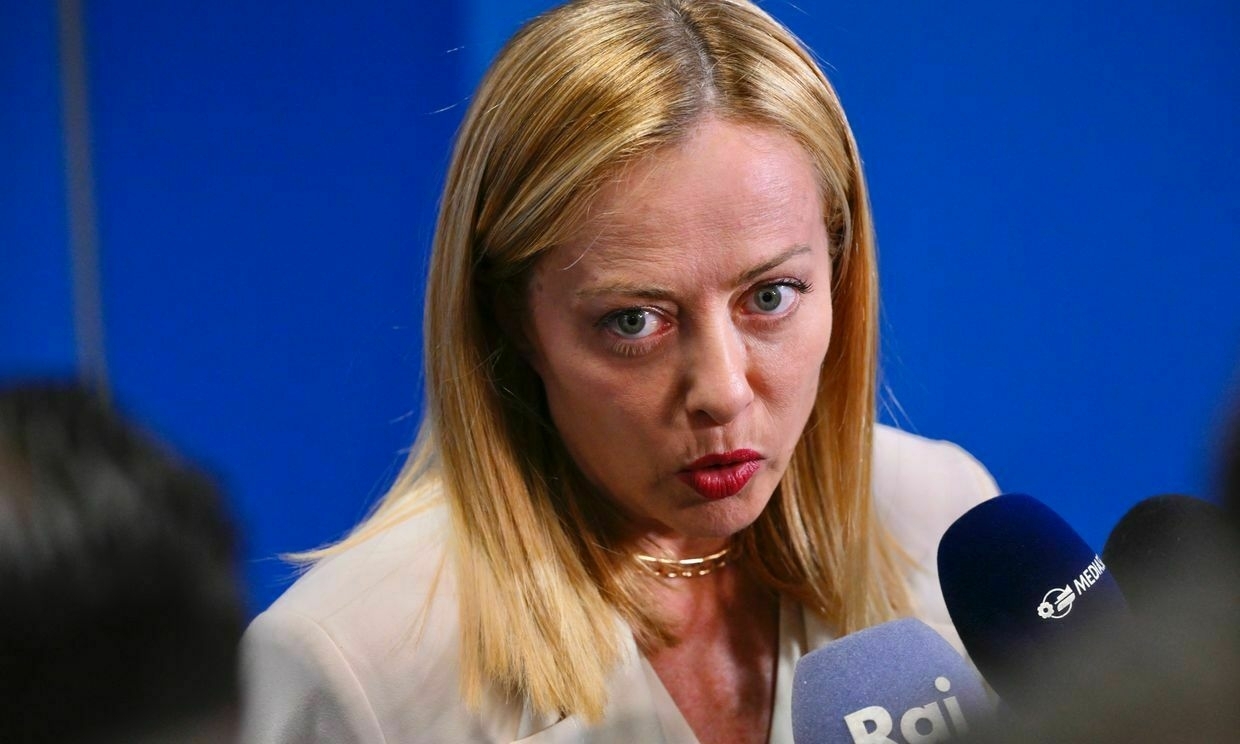
-
Meloni tells Trump US must show 'same determination' on Ukraine as with Iran
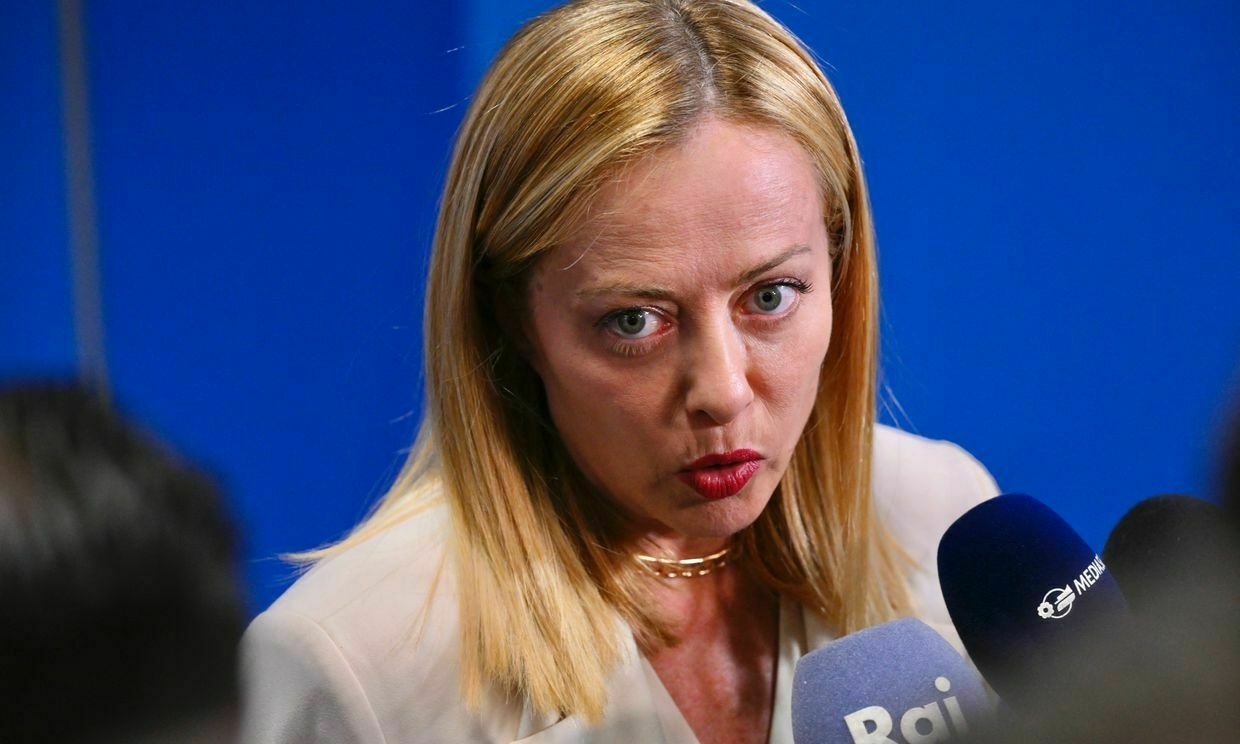
Italian Prime Minister Giorgia Meloni told U.S. President Donald Trump that the determination shown by the U.S. toward Iran should also be applied to ending Russia’s war against Ukraine, she said on June 25 on the sidelines of the NATO summit in The Hague.
Meloni, a close Trump ally and the only European leader invited to his 2025 inauguration, welcomed the recently announced ceasefire between Israel and Iran.
She emphasized that sustained commitment is also needed in Ukraine, where Russian President Vladimir Putin last week declared “all of Ukraine is ours."
“I spoke about this with President of the United States Donald Trump, to whom I said the same determination is needed to achieve two other important ceasefires,” Meloni said. “One in Ukraine, where Russia seems unwilling to take any steps forward, and one in Gaza."
On June 24, Trump announced that a ceasefire between Iran and Israel had taken effect following U.S. airstrikes on Iran’s nuclear infrastructure.
The escalation followed Israel’s June 13 attack that prompted Iran to retaliate with missile attacks on Tel Aviv and other cities, killing multiple civilians, including five Ukrainian citizens.
President Volodymyr Zelensky met with Trump during the summit, held amid concerns over waning U.S. support for Kyiv. Unlike in 2024, this year’s communique did not directly condemn Russia’s invasion, a shift that underscores changing political dynamics within the Alliance.
The leaders reaffirmed support for Ukraine’s defense, saying national contributions toward Ukraine’s military-industrial capacity will count toward NATO’s new defense spending goal.
All 32 NATO member states agreed to a new benchmark, committing to raise defense spending to 5% of GDP by 2035. Meloni praised the decision as a sign of unity.
“I believe the unity of the alliance and its willingness to strengthen itself is more important, especially in the context we are in, and is clearly a very important element,” she said.
The NATO summit comes just one week after Trump departed early from the G7 in Canada, delaying direct talks with Zelensky until June 25.
Ukraine war latest: US signals more Patriot missiles for Kyiv after Zelensky-Trump talks at NATO summitKey developments on June 25: * Zelensky, Trump hold talks on NATO summit sidelines * ‘Something unknown’ hits key Russian drone facility in Taganrog, Ukrainian official says * Russia has launched over 28,000 Shahed drones at Ukraine since 2022, with nearly 10% fired in June alone, Zelensky says * Donetsk Oblast city “onThe Kyiv IndependentThe Kyiv Independent news desk
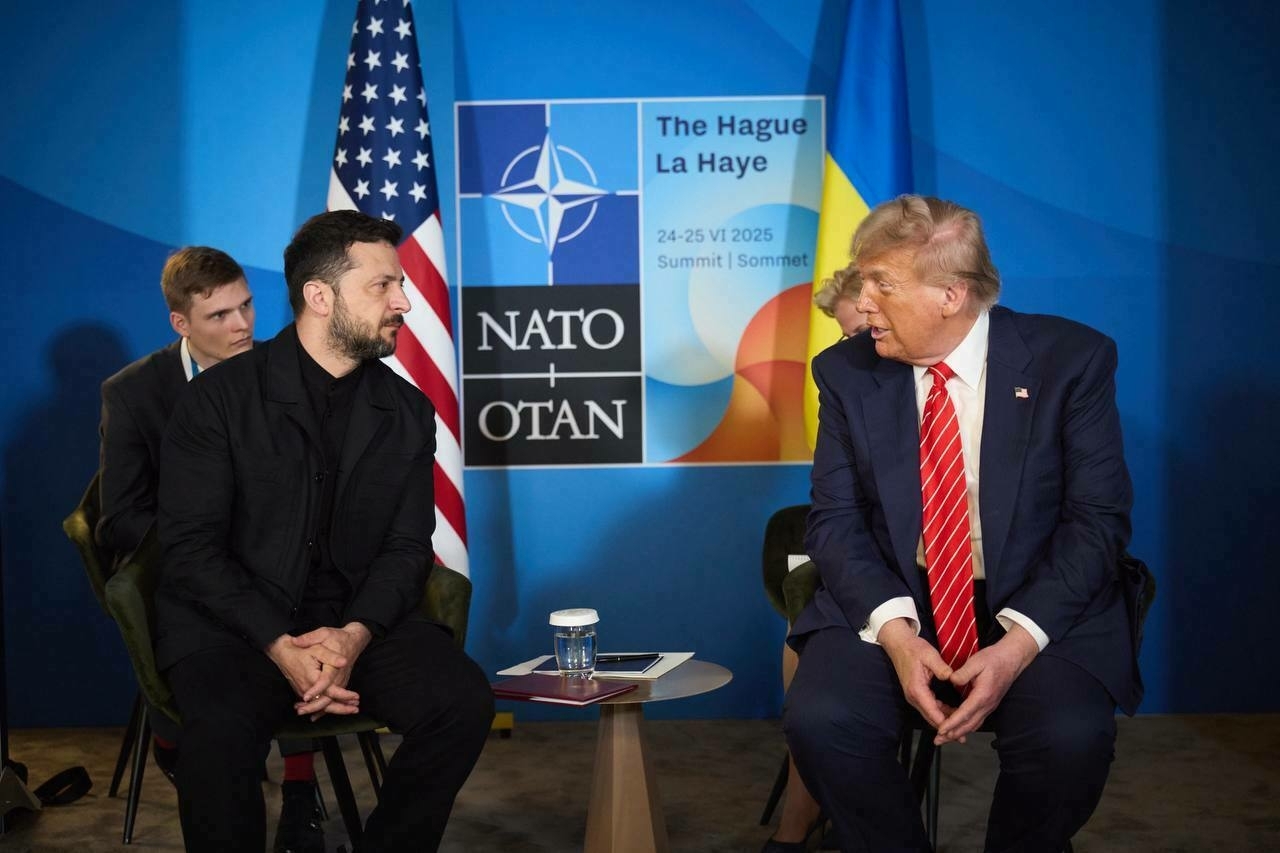
-
General Staff: Russia has lost 1,015,750 troops in Ukraine since Feb. 24, 2022
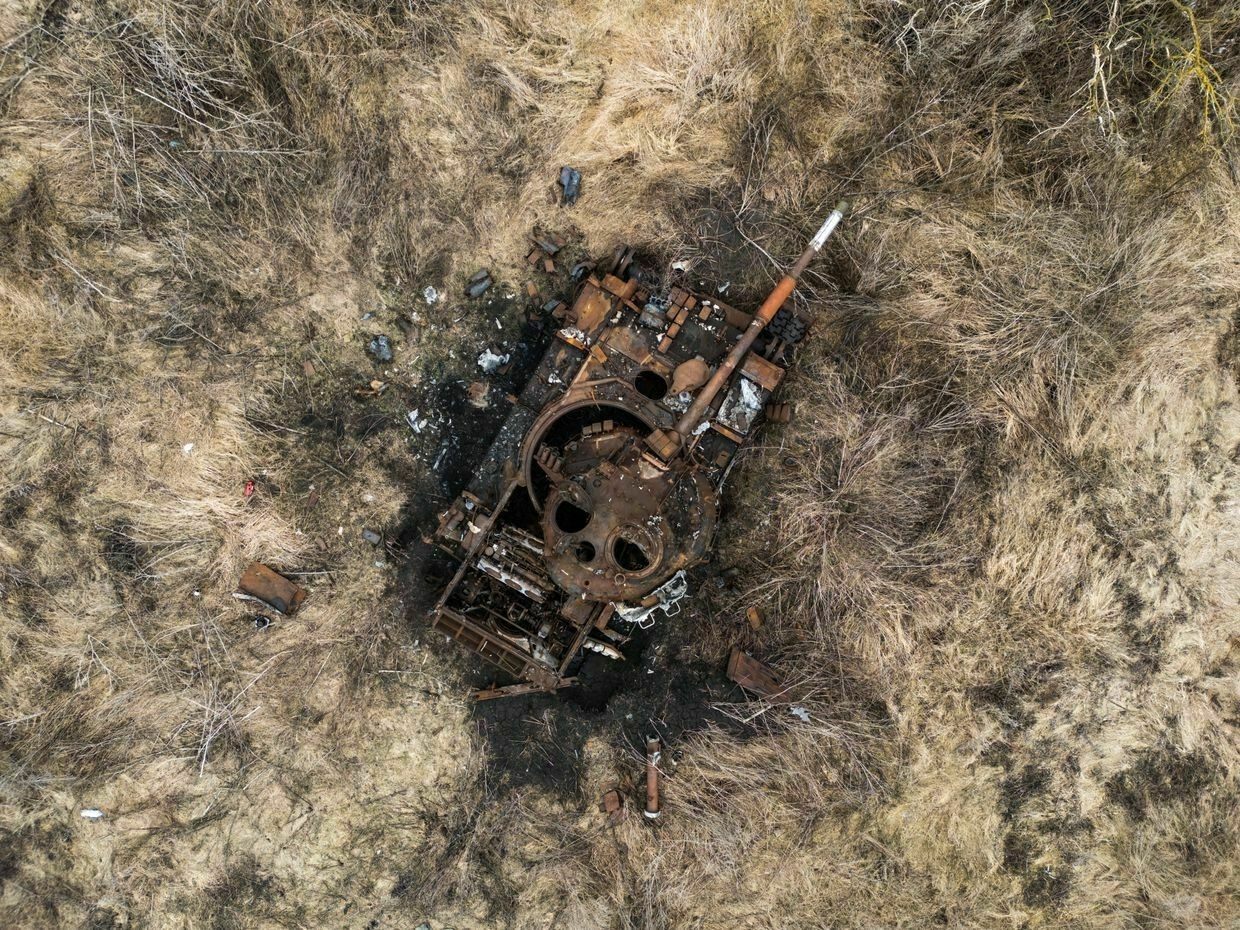
Russia has lost 1,015,750 troops in Ukraine since the beginning of its full-scale invasion on Feb. 24, 2022, the General Staff of Ukraine’s Armed Forces reported on June 26.
The number includes 1,100 casualties that Russian forces suffered just over the past day.
According to the report, Russia has also lost 10,968 tanks, 22,892 armored fighting vehicles, 53,195 vehicles and fuel tanks, 29,617 artillery systems, 1,425 multiple launch rocket systems, 1,188 air defense systems, 416 airplanes, 337 helicopters, 42,153 drones, 3,388 cruise missiles, 28 ships and boats, and one submarine.
Ukraine war latest: US signals more Patriot missiles for Kyiv after Zelensky-Trump talks at NATO summitKey developments on June 25: * Zelensky, Trump hold talks on NATO summit sidelines * ‘Something unknown’ hits key Russian drone facility in Taganrog, Ukrainian official says * Russia has launched over 28,000 Shahed drones at Ukraine since 2022, with nearly 10% fired in June alone, Zelensky says * Donetsk Oblast city “onThe Kyiv IndependentThe Kyiv Independent news desk
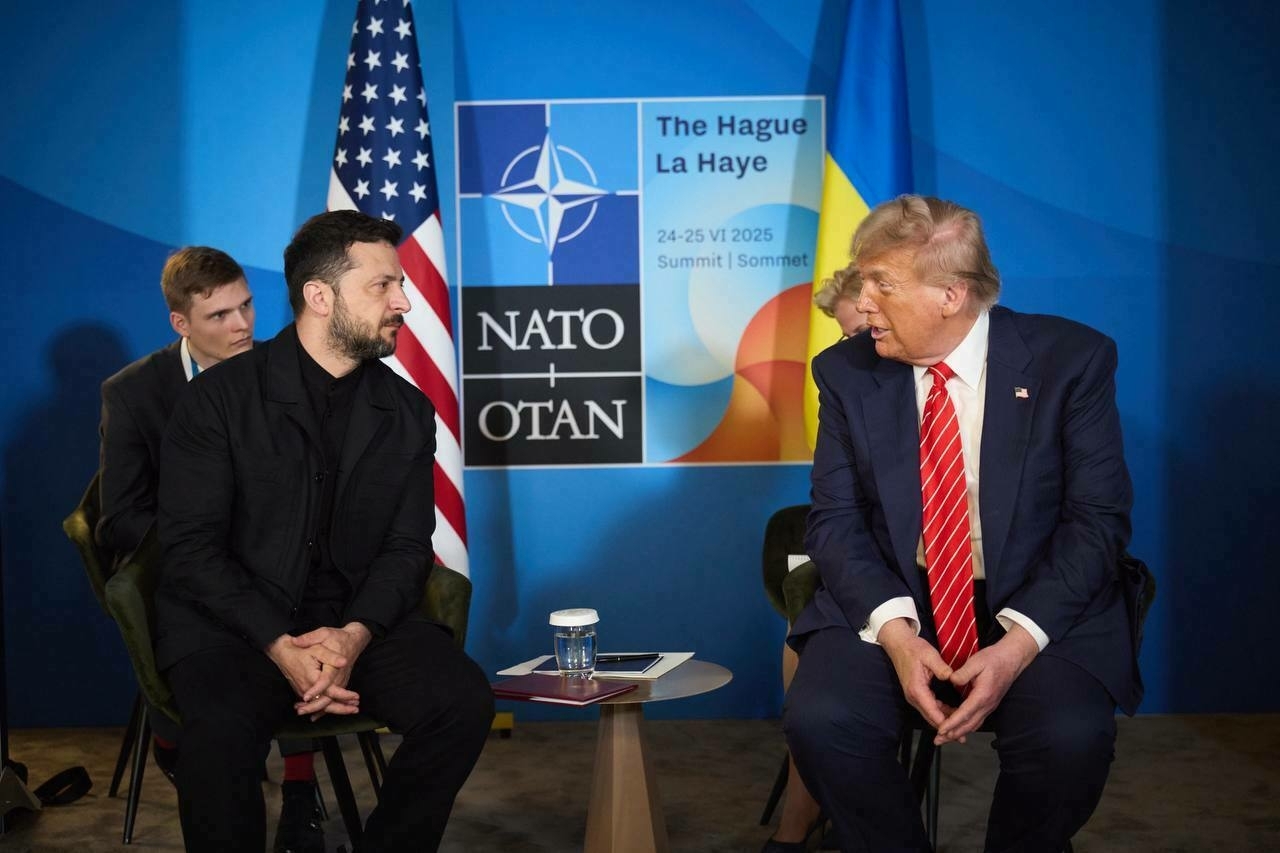
-
Russian court convicts 184 Ukrainian POWs captured in Kursk Oblast of terrorism, Mediazona reports
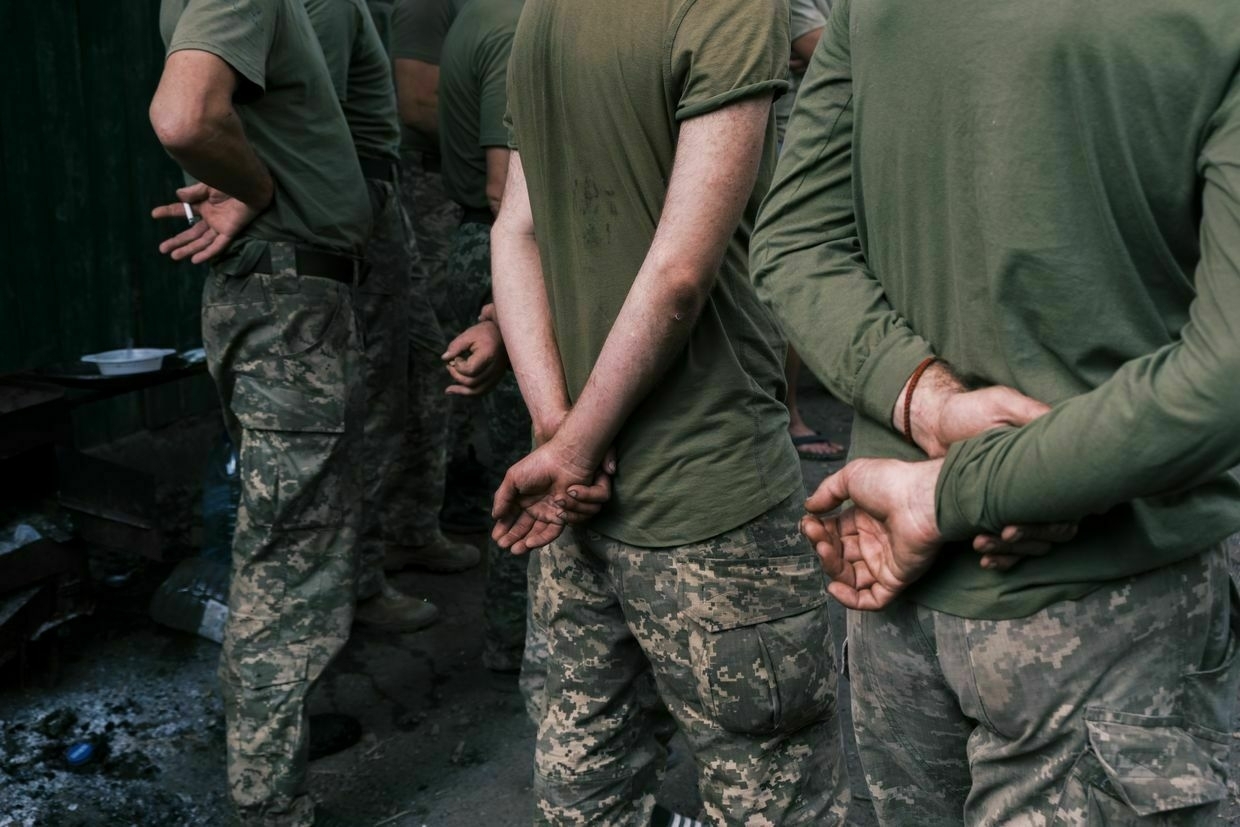
A Russian military court has convicted 184 Ukrainian prisoners of war (POWs) captured in Kursk Oblast of acts of terrorism, Mediazona reported on June 25.
Ukraine first launched a surprise offensive into Russia’s Kursk Oblast in August 2024. Ukrainian officials have said the incursion forced Russia to move resources away from its offensives in Eastern Ukraine.
Russia’s military prosecutors office convicts Ukrainian POWs captured in Kursk Oblast on a regular basis, independent Russian outlet Mediazona reported.
The POWs captured in Kursk were charged with carrying out a grave terrorist act by a group of individuals, as outlined by the Russian Criminal Code.
Junior Lieutenant Yevhen Hoch was convicted of allegedly carrying out an act of terrorism by taking part in Ukraine’s Kursk Oblast incursion.
Russia has waged its war against Ukraine since 2014 and initiated a full-scale invasion in February 2022.
Russian authorities accused Hoch of interfering with civilian evacuations for three weeks amid Ukraine’s Kursk offensive and for “intimidating them by openly carrying and using combat weapons."
Russia regularly convicts people of politically motivated charges in an effort to silence opposition to its war against Ukraine.
The Russian 2nd Western District Military Court has carried out the sentences against the 184 Ukrainian POWs since the beginning of the year.
Moscow has gone after journalists in Ukraine’s Russian-occupied territories. Ukrainian Journalist Viktoriia Roshchyna disappeared in August 2023 and died after being tortured in Russian captivity. Roschyna’s body was returned to Ukraine in February with missing organs.
Putin insists the Russian economy is fine, but Kremlin officials say otherwiseIn a rare public sign that all is not well in Russia, two high-ranking Moscow officials last week issued separate warnings about the state of the country’s economy. Russian Central Bank Governor Elvira Nabiullina and Economy Minister Maxim Reshetnikov both highlighted that amid the Kremlin’s full-scale war against Ukraine, the tools Moscow once relied on to maintain wartime growth are nearly exhausted. Almost immediately, Russian President Vladimir Putin on June 20 dismissed the concerns, clai The Kyiv IndependentTim Zadorozhnyy
The Kyiv IndependentTim Zadorozhnyy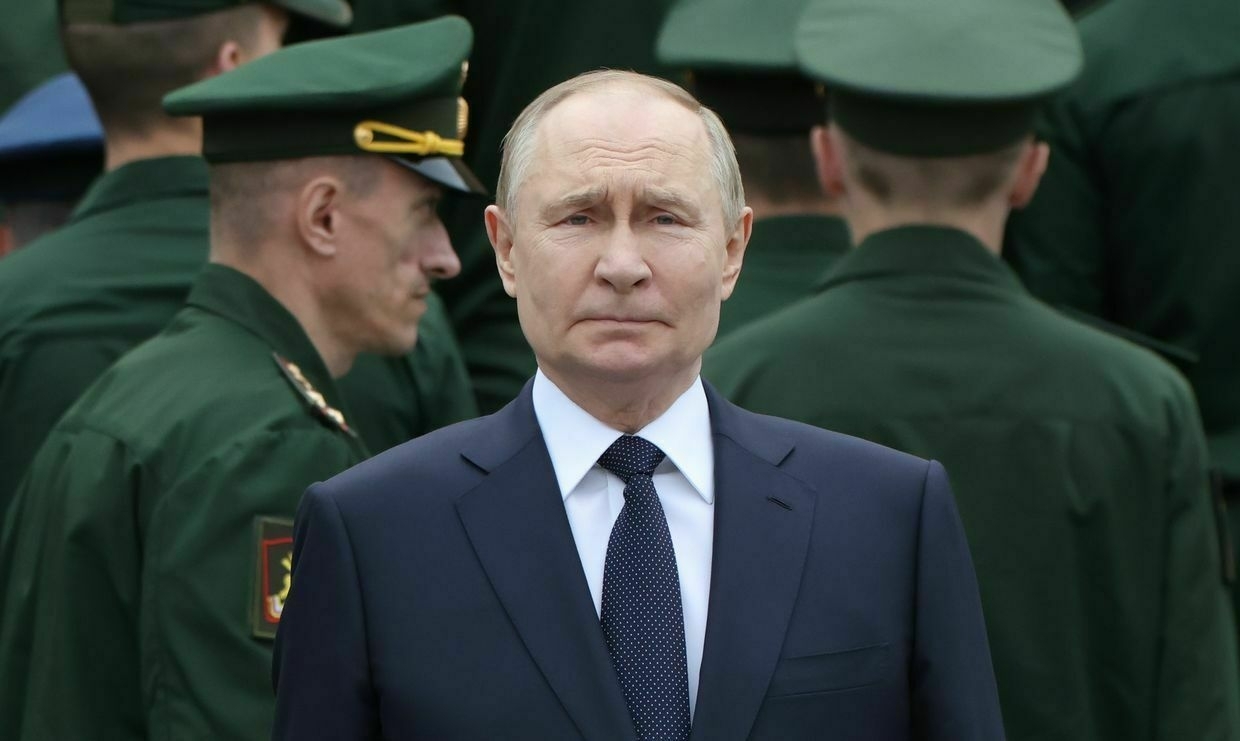
-
Explosions reported in Moscow, airport restrictions imposed as Russian authorities claim drone attack
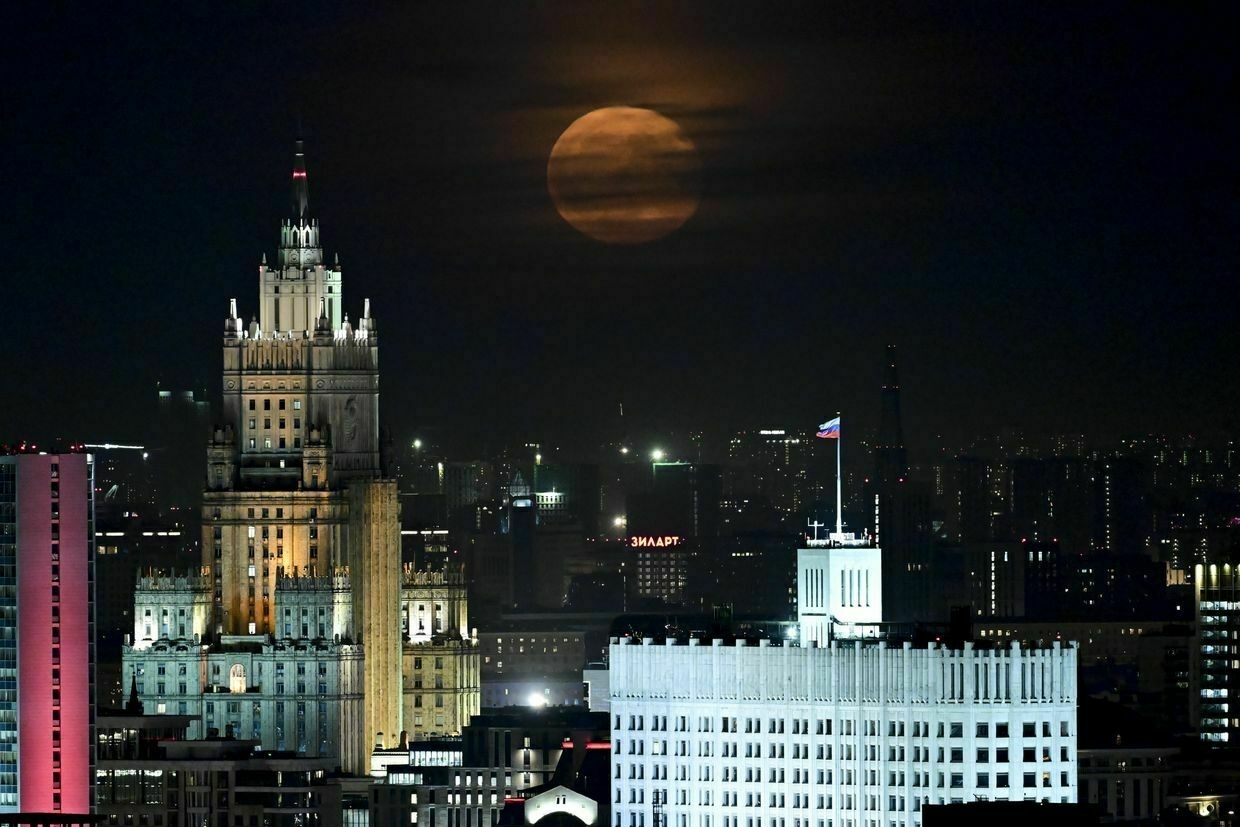
Editor’s note: This is a developing story and is being updated.
Explosions were reported in Moscow overnight on June 26, with Mayor Sergey Sobyanin claiming two drones were shot down by air defenses.
Two drones were shot down, Sobyanin said, adding that emergency services are responding at the wreckage sites.
Ukraine’s military regularly strikes military targets deep within Russia in an attempt to diminish Moscow’s fighting power as it continues its war against Ukraine.
Explosions were reportedly heard in the city, independent media reported, citing Moscow’s residents.
The Kyiv Independent could not independently verify these claims.
Kaluga airport and Moscow’s Vnukovo airport had flight restrictions imposed amid the drone attack, Artyom Korenyako, a spokesperson for Russia’s state aviation agency Rosaviatsia, said early on June 26.
“The airport is temporarily not accepting or sending flights. Aircraft crews, air traffic controllers, and airport services must take all necessary measures to ensure flight safety,” he said.
The restrictions were later lifted.
On June 1, Ukraine launched a game-changing drone attack on four key Russian military airfields, damaging 41 planes, including heavy bombers and rare A-50 spy planes.
Kyiv claimed it disabled 34% of Russia’s strategic bomber fleet in what is seen as one of the most daring operations during Russia’s full-scale war.
Ukraine’s military intelligence agency was behind explosions near Desantnaya Bay in Russia’s far eastern Vladivostok on May 30, which reportedly damaged military personnel and equipment, a source in HUR told the Kyiv Independent.
Ukraine war latest: US signals more Patriot missiles for Kyiv after Zelensky-Trump talks at NATO summitKey developments on June 25: * Zelensky, Trump hold talks on NATO summit sidelines * ‘Something unknown’ hits key Russian drone facility in Taganrog, Ukrainian official says * Russia has launched over 28,000 Shahed drones at Ukraine since 2022, with nearly 10% fired in June alone, Zelensky says * Donetsk Oblast city “onThe Kyiv IndependentThe Kyiv Independent news desk
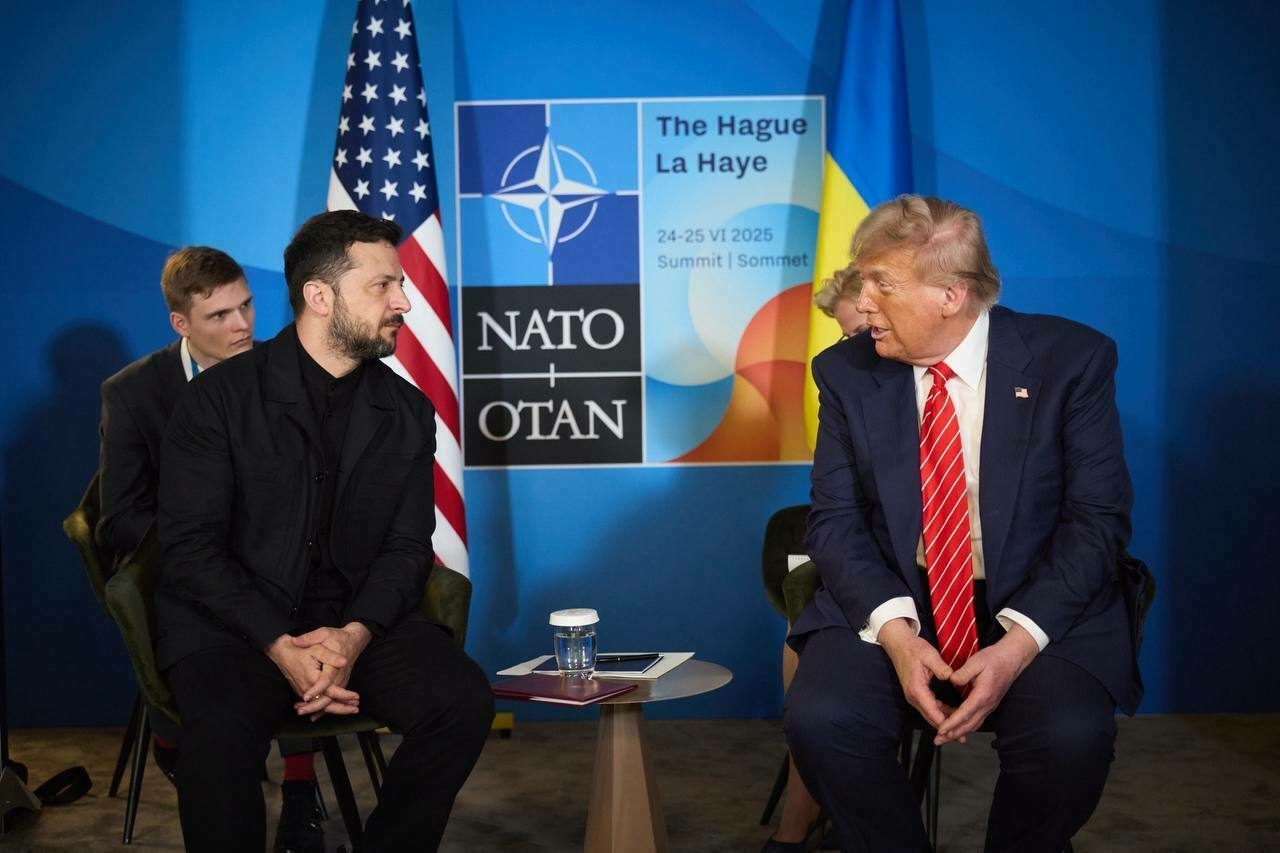
-
NATO allies surprised by Rubio's inconsistency on Russia sanctions, POLITICO reports
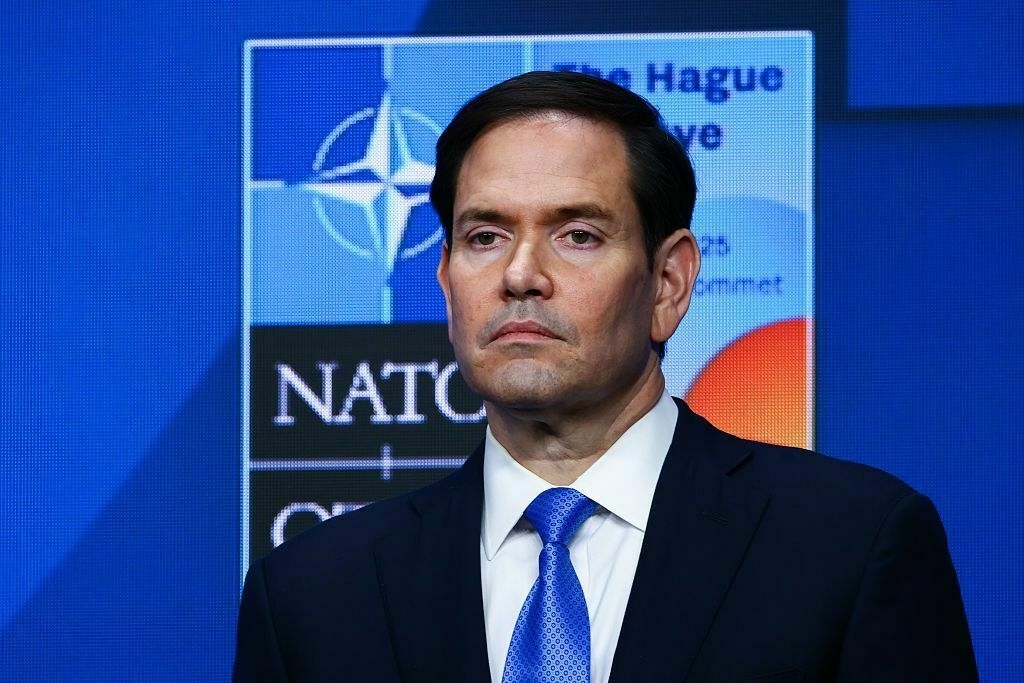
United States Secretary of State Marco Rubio surprised NATO allies this week with conflicting messages on Russia sanctions, delivering a tougher stance in private than in his public remarks, POLITICO reported on June 25.
Rubio met with NATO foreign ministers on June 25 during a private dinner at the alliance’s annual summit. According to sources who spoke with POLITICO, Rubio acknowledged that Russia was the main obstacle preventing peace talks to end the war in Ukraine.
He reportedly said the U.S. Senate would likely consider new sanctions legislation after completing work on President Donald Trump’s spending bill.
However, just hours later, Rubio softened his position on Russia during an exclusive interview with POLITICO, calling for a more cautious approach.
“If we did what everybody here wants us to do, and that is come in and crush them with more sanctions, we probably lose our ability to talk to them about the ceasefire and then who’s talking to them?” Rubio said.
He also added that Trump would know the “time and place” to change course.
When asked about the apparent shift in tone, a senior U.S. official insisted Rubio’s messaging has remained consistent in conversations with allies.
“The secretary has been very consistent in meeting and calls with his counterparts on three key point,” the official said.
“One is that the president believes strongly that the only way this war ends is through negotiations; second, as soon as the U.S. imposes new sanctions on Russia the opportunity for the U.S. to be involved in those negotiations closes; and third, that the Senate, in America anyway, is an independent body that at some point is going to move on those sanctions,."
At the NATO dinner, Rubio reportedly faced criticism from Polish Foreign Minister Radoslaw Sikorski, who claimed that Russian President Vladimir Putin was disrespecting Trump by violating the ceasefire.
It has been more than 100 days since Ukraine agreed to a U.S.-backed complete ceasefire, while Russia continues to reject it.
Sikorski also reportedly denounced Moscow’s repeated attacks on Kyiv and other Ukrainian cities, which have intensified in recent weeks, saying such strikes “should not come for free” — implying that the U.S. and Europe should do more to support Ukraine.
Meanwhile, Rubio has delivered different messages in public and behind closed doors. Despite the shifting rhetoric, Baltic and Nordic countries reportedly view him as a pragmatic ally within the Trump administration — one who has a realistic understanding of the threats posed by Russia and China, according to a second European official cited by POLITICO.
Ukraine war latest: US signals more Patriot missiles for Kyiv after Zelensky-Trump talks at NATO summitKey developments on June 25: * Zelensky, Trump hold talks on NATO summit sidelines * ‘Something unknown’ hits key Russian drone facility in Taganrog, Ukrainian official says * Russia has launched over 28,000 Shahed drones at Ukraine since 2022, with nearly 10% fired in June alone, Zelensky says * Donetsk Oblast city “onThe Kyiv IndependentThe Kyiv Independent news desk
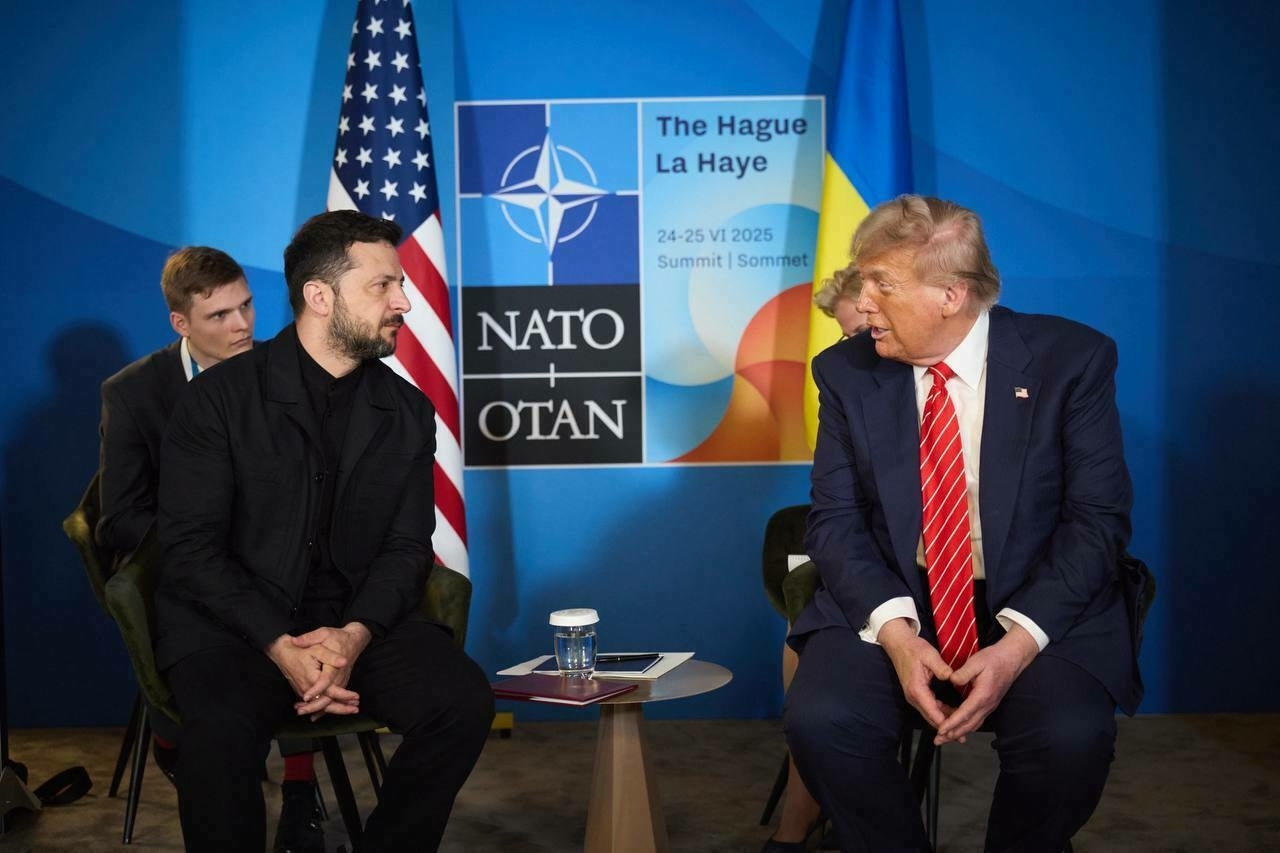
-
Ukraine, Council of Europe sign historic agreement to establish tribunal on Russian aggression
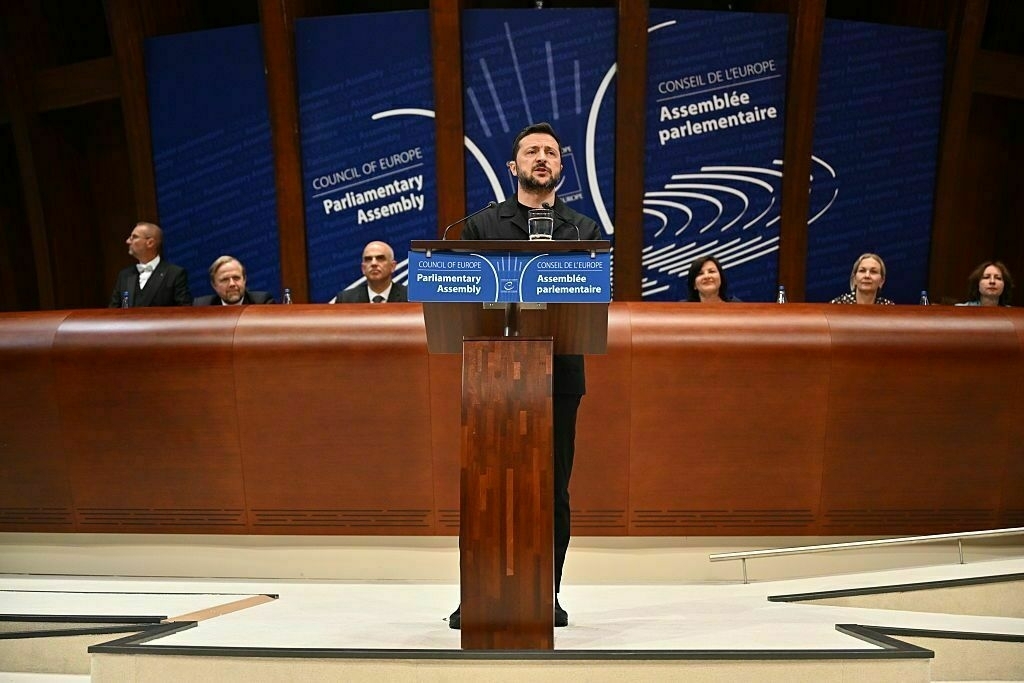
Ukraine and the Council of Europe signed a historic agreement on June 25 to establish a Special Tribunal for the Crime of Aggression , marking a major step toward holding Russia’s leadership accountable for launching the full-scale invasion in 2022.
The agreement was signed by President Volodymyr Zelensky and Council of Europe Secretary General Alain Berset during a ceremony in Strasbourg, France – following more than three years of diplomatic efforts and deliberation.
Speaking at the Parliamentary Assembly of the Council of Europe (PACE), Zelensky thanked the assembly and underscored the importance of justice.
“Everyone responsible for this war must be held to account,” he said. “Every war criminal must face justice – including Putin… the crime of aggression must be recorded, judged, and punished."
Foreign Minister Andrii Sybiha reacted, calling the signing a “historic moment not only for Ukraine, but also for world justice."
The Special Tribunal will be established within the framework of the Council of Europe and will have the mandate to prosecute senior Russian leaders for the crime of aggression – defined as the decision to use armed force against another state, in violation of the United Nations Charter.
The tribunal is intended to close a key legal gap in existing international accountability mechanisms. While the International Criminal Court (ICC) has jurisdiction to investigate war crimes, crimes against humanity, and genocide in Ukraine – it cannot examine the crime of aggression due to jurisdictional constraints. The new tribunal will complement the ICC’s efforts by specifically targeting high-level officials responsible for starting the war.
President Zelensky has long advocated for the creation of the tribunal, emphasizing the need to bring Russian President Vladimir Putin and other senior officials to justice. Ukrainian prosecutors have documented thousands of war crimes committed by Russian forces, including attacks on civilians, cultural landmarks, medical facilities, and reports of torture and forced deportations.
The ICC has already issued arrest warrants for Putin and Maria Lvova-Belova, the Russian official overseeing the forced deportation of Ukrainian children to Russia. While war crimes and crimes against humanity can be prosecuted at any level of command, the crime of aggression focuses exclusively on senior state officials responsible for planning and waging war.
In addition to the special tribunal, the Council of Europe’s Ukraine-related work also includes the Register of Damage, an initiative that has already received more than 34,000 claims detailing losses and harms resulting from Russia’s full-scale invasion. The establishment of the register was a significant international effort and the first step towards a mechanism to ensure justice and compensation for Ukraine and its people.
Zelensky, Trump hold talks on NATO summit sidelines“We covered all the truly important issues,” President Volodymyr Zelensky said. “We discussed how to achieve a ceasefire and a real peace. We spoke about how to protect our people. We appreciate the attention and the readiness to help bring peace closer.”The Kyiv IndependentKateryna Denisova
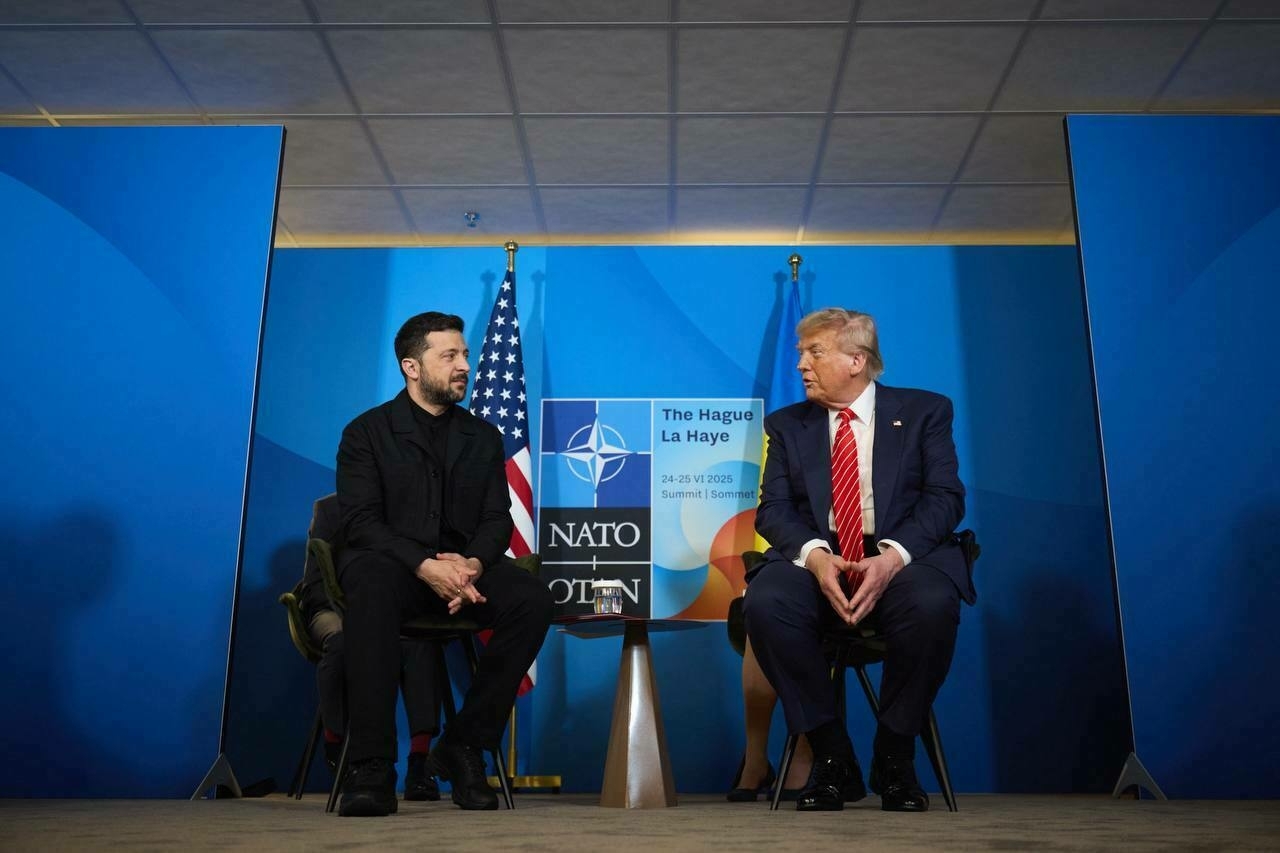
-
Ukrainian author killed by Russia awarded UK’s prestigious Orwell Prize in political writing
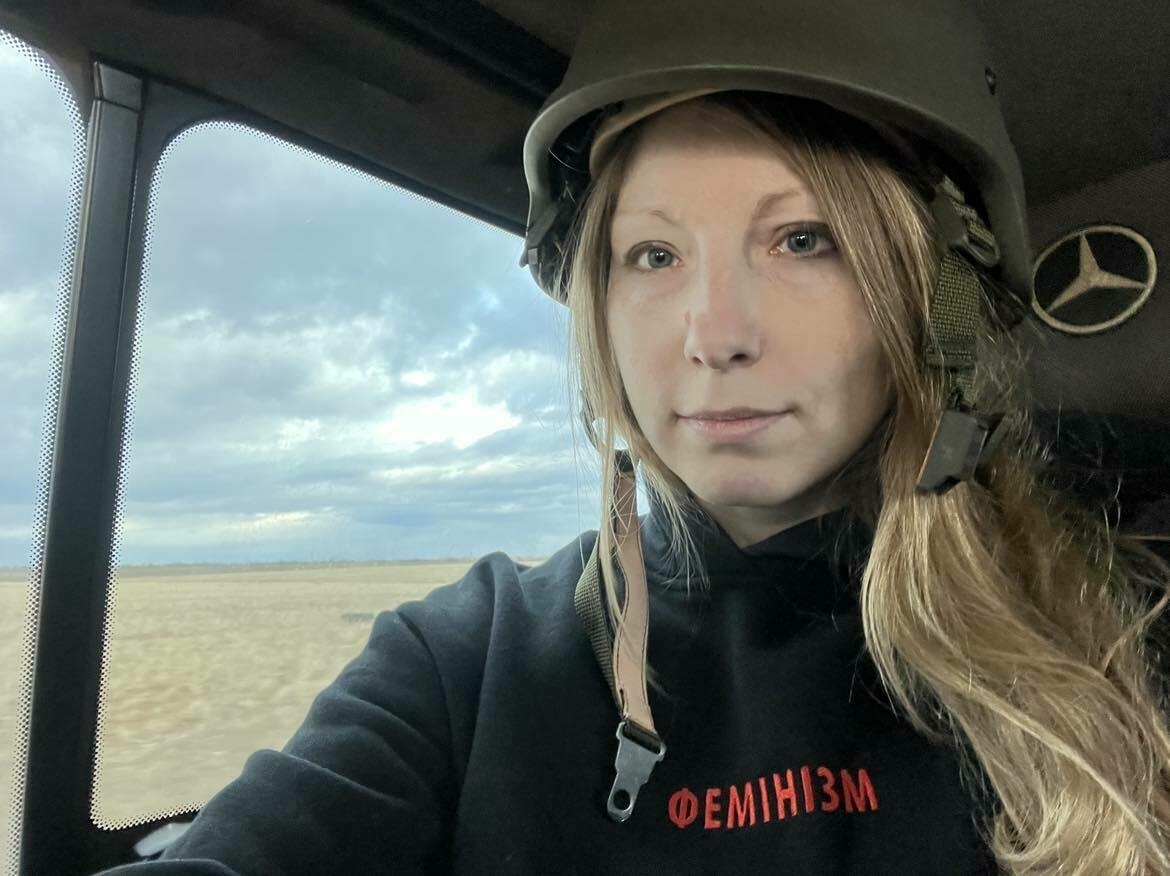
Two years after her tragic death in a Russian missile strike, Ukrainian author Victoria Amelina was posthumously awarded on June 25 the prestigious U.K. Orwell Prize for her book “Looking at Women, Looking at War.”
Amelina was a finalist among notable nominees in the political non-fiction category, including American journalist Anne Applebaum.
Kim Darroch, the chair of judges for the Orwell Prize, called Amelina’s book “an unforgettable picture of the human consequences of war."
A famous Ukrainian author, Amelina took up work as a war crimes researcher following the start of Russia’s full-scale war in 2022.
The posthumous recognition of Amelina’s work is a bittersweet moment for Ukraine’s cultural sphere, which continues to lose artists to the war both on the front line and in attacks against civilians, while Russian artists — regardless of their positions — are being reintegrated into Western cultural life.
“It’s a significant victory for our culture — a book by a Ukrainian author, written in English, has received a prestigious international prize,” journalist and cultural manager Tetyana Teren, who was a close friend of Amelina, told the Kyiv Independent.
“I’m certain that if she were still with us, Victoria would have used this recognition to share vital messages with an international audience about the true reasons behind Russia’s imperial war against Ukraine and Europe and about the urgent need to keep fighting for the future, even as some foreign politicians call for peace without justice built on compromise with the aggressor."
Amelina is among the 208 Ukrainian artists who have been killed by Russia since 2022, according to statistics provided by Ukraine’s Culture Ministry in mid-June.
Amelina died on July 1 after succumbing to serious injuries sustained in a Russian missile strike on Kramatorsk in Ukraine’s eastern Donetsk Oblast. She was only 37 years old and is survived by her son.
Amelina was in Kramatorsk with a delegation of Colombian writers and journalists when two Russian Iskander missiles struck their location in a popular downtown restaurant. Twelve other people were killed in the strike and 60 were wounded.
Kramatorsk is a frequent target of Russian attacks due to its role as a logistical hub for Ukrainian forces.
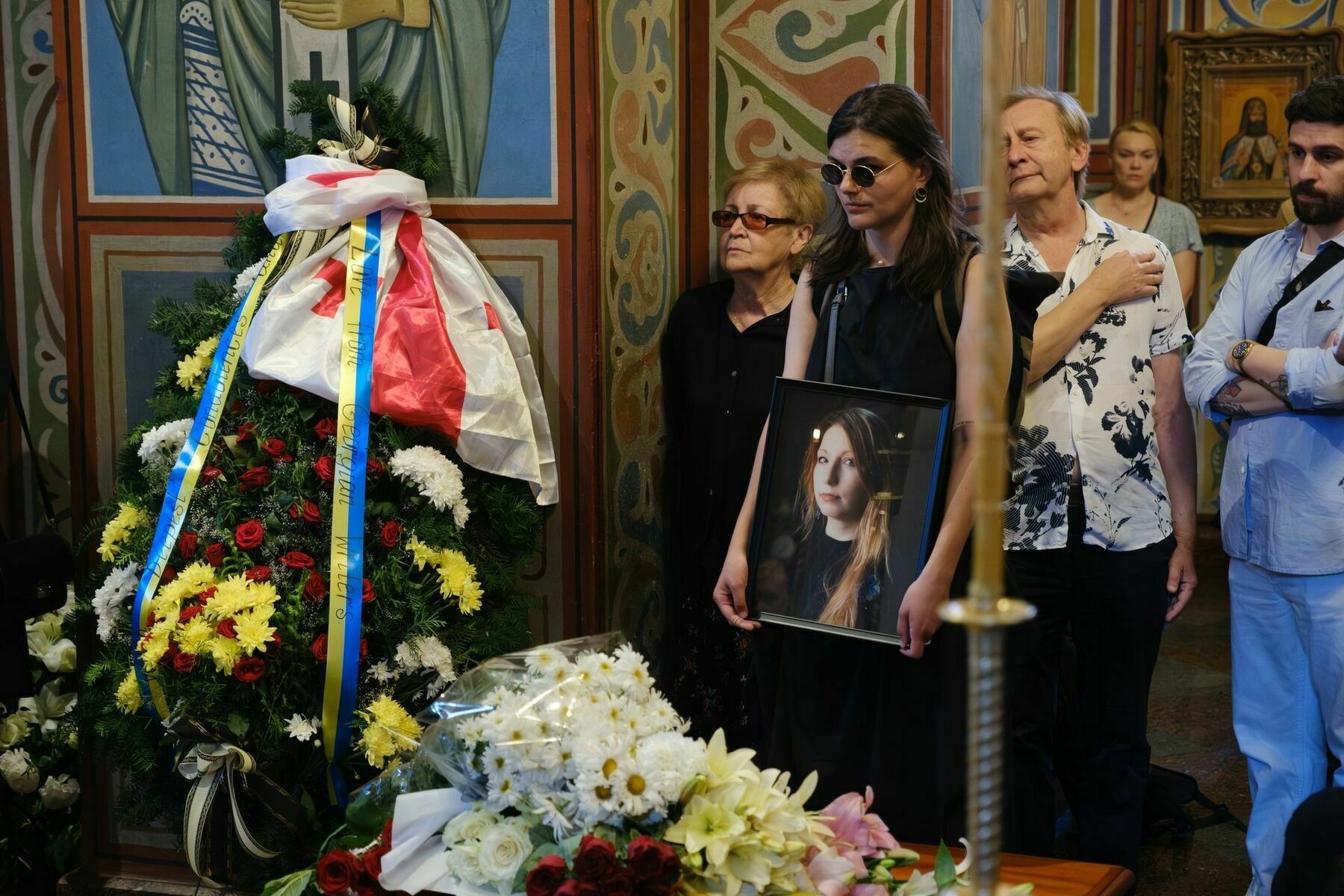
A woman in mourning holds a portrait of late Ukrainian author Victoria Amelina during a funeral ceremony at St. Michael’s Golden-Domed Monastery in Kyiv, Ukraine, on July 4, 2023. (Vitalii Nosach / Global Images Ukraine via Getty Images) At the time of Amelina’s murder, the manuscript for “Looking at Women, Looking at War” remained incomplete.
A group of her closest friends and colleagues undertook the responsibility of finalizing the manuscript for publication, striving to minimize editorial intervention in order to preserve the integrity and authenticity of her voice.
“When I read the first couple of chapters of Victoria Amelina’s manuscript in late 2023, the words ‘Orwell Prize’ popped up in my mind,” academic Sasha Dovzhyk, who was part of the editorial team, told the Kyiv Independent. “Victoria’s gift for drawing parallels between past and present, her political vision, and her drive in the pursuit of justice were conveyed in lucid and elegant prose, much in the spirit of George Orwell.”
“And then this polished text fell apart, disassembled into notes and unfinished chapters, which in themselves have become a testimony of Russia’s war crimes and its attempts to erase Ukrainian culture.”
“Looking at Women, Looking at War” explores both the resilience and adversity faced by Ukrainian women during the war, including figures such as human rights lawyer and Nobel Peace Prize laureate Oleksandra Matviichuk and artist Liubov Panchenko.
“I see the tremendous efforts you and your colleagues make to give justice a chance,” Amelina writes Matviichuk, as she details in the book.
“Yet despite all our efforts, we still might lose. And if we lose, I want at least to tell the story of our pursuit of justice.”

The cover of Victoria Amelina’s book “Looking at Women, Looking at War” and a photograph of women and children at a makeshift memorial at the site of a missile attack in Sumy, Ukraine, on April 14, 2025. (Roman Pilipey / AFP via Getty Images) Alongside these accounts, the book also traces Amelina’s personal journey into investigating war crimes, highlighting the emotional toll of juggling such harrowing work with motherhood.
Previous winners of the Orwell Prize in the political writing category include American journalist Joshua Yaffa’s book “Between Two Fires: Truth, Ambition, and Compromise in Putin’s Russia” in 2021 and “Say Nothing: A True Story of Murder and Memory in Northern Ireland” by American journalist Patrick Radden Keefe in 2019.
Amelina is the first Ukrainian writer to receive the prize.
Amelina was among Ukraine’s most prolific young authors, having transitioned from a career in IT to full-time writing in 2015. Before the full-scale invasion, she actively published fiction, poetry, and children’s literature.
Her debut novel, “The Fall Syndrome” (2015), centers on the events of the 2014 Revolution of Dignity, also known as the EuroMaidan.
Her 2017 novel, “Dom’s Dream Kingdom,” explores the life of a Soviet colonel’s family living in 1990s Lviv in the childhood apartment once lived in by Polish-Jewish writer Stanislaw Lem.
Her work has also been translated into a number of languages, including English, Polish, Italian, Spanish, German, Croatian, Dutch, Czech, and Hungarian.
Note from the author:
Hi there, it’s Kate Tsurkan, thanks for reading my latest artice. I was overcome with such strong emotions when I learned that Victoria Amelina won this prestigious literary prize. She was my friend, and I can’t help but think not only of the time we spent together but of the loss of a great literary voice that Russia stole from this world. Please read her book, and don’t let her work ever be forgotten. Also, if you like reading about this sort of thing, please consider supporting us and becoming a member of the Kyiv Independent today.
Russia killed Ukrainian author Victoria Amelina — but not her words or quest for justiceUkrainian author Victoria Amelina never got to finish writing her book “Looking at Women, Looking at War.” After she was killed in a Russian missile strike on Kramatorsk in Ukraine’s eastern Donetsk Oblast in 2023, it fell upon her closest friends and colleagues to do what they could toThe Kyiv IndependentKate Tsurkan

-
Diplomacy or deal-making? Unpacking the U.S.-Belarus prisoner deal
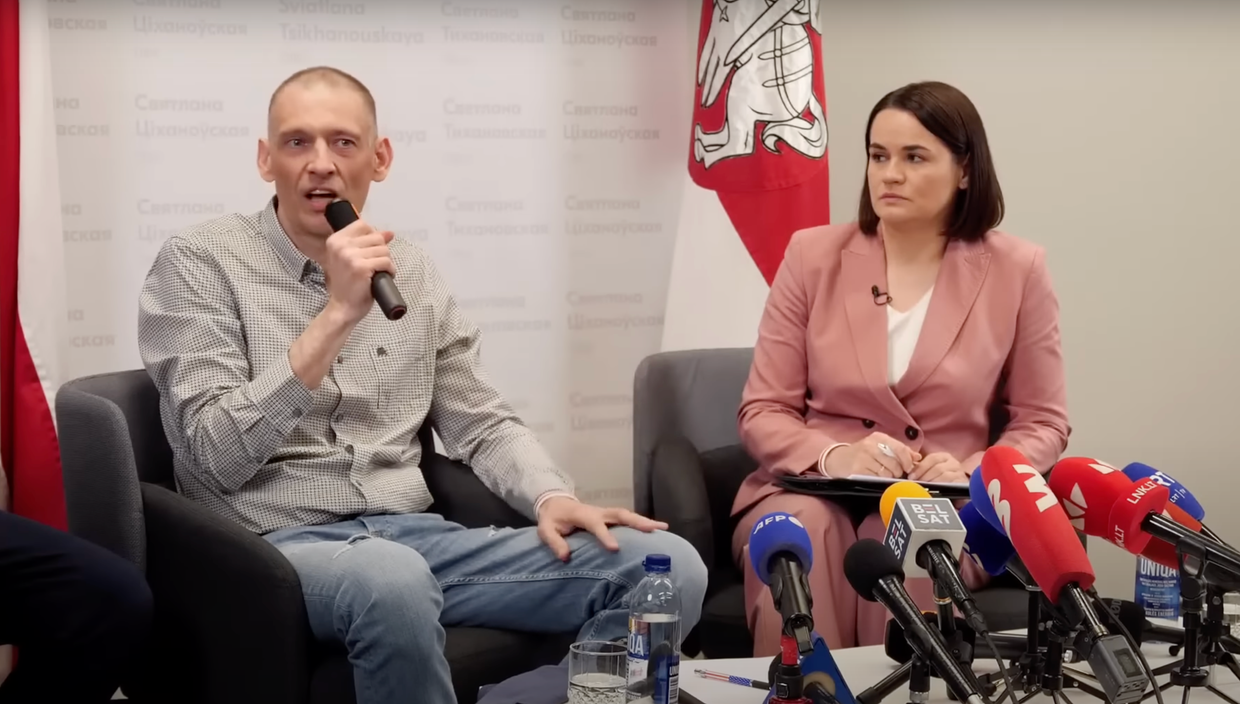
After a high-level U.S. visit to Belarus led to the release of 14 prisoners, observers have been left wondering what autocrat Alexander Lukashenko may have secured in return.
U.S. President Donald Trump’s special envoy to Ukraine and Russia Keith Kellogg’s visit to Minsk on June 21 marked the highest-level diplomatic contact the isolated regime of Alexander Lukashenko had with the U.S. in years.
The trip was also marked by the freeing by the Lukashenko regime of 14 prisoners, including one of the most notable of Lukashenko’s political opponents — Siarhei Tsikhanouski.
With the released prisoners in the spotlight, both parties to the negotiations were vague regarding the results of the meeting. But members of the Belarusian opposition in exile and political analysts all agreed Lukashenko was seeking some form of international legitimacy, as well as sanctions relief.
“For Lukashenko, the visit is a fairly strong legitimizing step,” said Lesia Rudnik, the director of an exiled independent Belarusian think tank, the Center for New Ideas.
“I believe we’re at the beginning of a dialogue … but I think we’ll see a rather slow development of the situation.”
Lukashenko has been ostracized by the West over his support for Russia’s war against Ukraine and brutal suppression of freedoms in Belarus. His international contacts have been limited to China, Vietnam, Iran, and African states that have minimal trade turnover with Belarus, and, increasingly, local Russian officials. The only Western nations that have thus far broken the diplomatic freeze are Russia-sympathetic EU states Hungary and Slovakia.
As for the U.S., analysts suggest Washington could have been looking to deter deeper Belarusian involvement in the war, while also possibly securing a foreign policy win for Trump amid stalled peace negotiations between Kyiv and Moscow.
Carefully choreographed breakthroughThe trail to Kellogg’s top-level meeting in Minsk was blazed nearly a year ago under the administration of former U.S. President Joe Biden, with low-profile behind-the-scenes meetings and occasional prisoner releases.
The most tangible result of Kellogg’s mission was the sudden freeing of 14 prisoners, including Tsikhanouski, former RFE/RL journalist Ihar Karnei, and citizens of Estonia, Latvia, and Poland, who were released from prisons in Belarus and delivered to neighboring Lithuania. U.S. President Donald Trump marked the release with a celebratory post on his social media platform, Truth Social.
“President Trump now has the power and opportunity to free all political prisoners in Belarus just like that. And I ask him to do so.”
Once seen as an unlikely candidate for early release, Tsikhanouski was freed after serving five years of a nearly 20-year sentence. Jailed ahead of Belarus’s 2020 presidential election, his arrest prompted his wife, Sviatlana Tsikhanouskaya, to run in his place. Despite election observers finding she had won the election, Lukashenko claimed victory, sparking mass protests in Belarus that lasted for months.
At a press conference in Vilnius following his release, Tsikhanouski appealed to Trump to help free other political prisoners in Belarus.
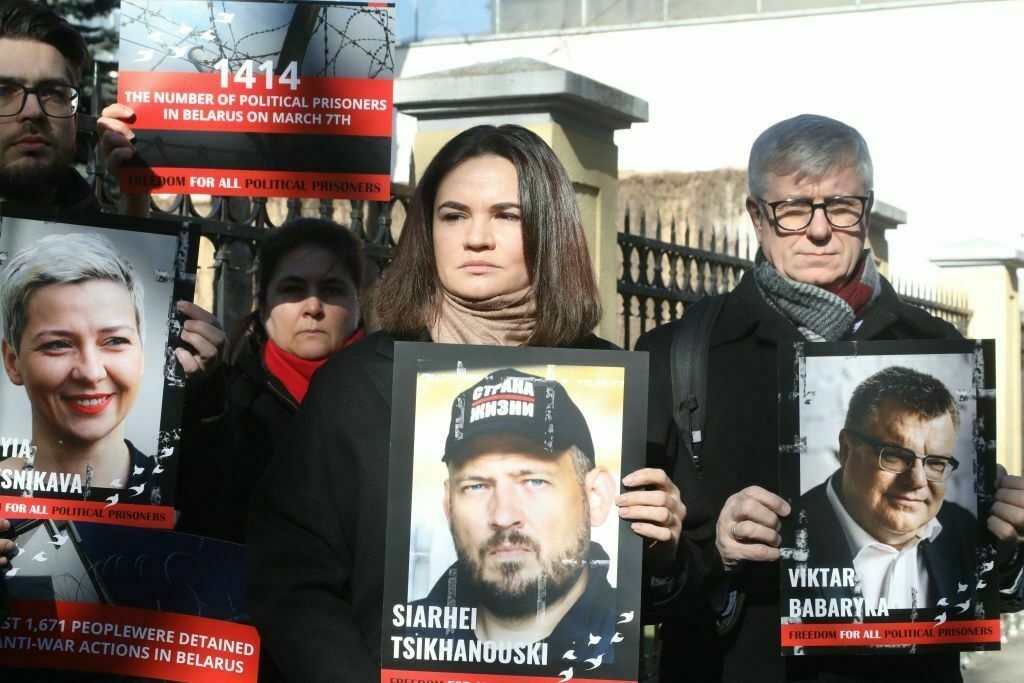
Sviatlana Tsikhanouskaya holds a photo of her jailed husband Siarhei Tsikhanouski as other demonstrators display images of Belarusian opposition figures Maria Kalesnikava and Viktar Babaryka during a protest in front of the Belarusian Embassy in Vilnius, Lithuania, on March 8, 2024. (Petras Malukas / AFP via Getty Images) “President Trump now has the power and opportunity to free all political prisoners in Belarus just like that. And I ask him to do so,” Tsikhanouski said.
Sviatlana Tsikhanouskaya, who, since being forced into exile, has led the Belarusian opposition, hailed the releases, pledging to “continue to work closely with President Trump’s administration and with all our allies on both sides of the Atlantic to achieve the freedom of every political prisoner.”
European leaders, including EU Commission President Ursula von der Leyen, European Parliament President Roberta Metsola, Polish Foreign Minister Radoslaw Sikorski, and others, also welcomed the U.S. diplomatic efforts and the freeing of the political prisoners.
Following four years of continuous, harsh repression, Lukashenko suddenly pardoned 18 political prisoners in July 2024, then continued to release small batches of political prisoners every month for half a year. Tsikhanouski said he had heard talk of his potential release in August 2024.
In February, U.S. Deputy Assistant Secretary of State Christopher W. Smith made an unannounced visit to Belarus, securing the release of a U.S. citizen and two Belarusian political prisoners.
John Coale, Kellogg’s deputy, during a low-profile visit to Minsk in May facilitated the release of dual U.S.-Belarusian citizen Yuras Ziankovich. The earlier contacts paved the way for Kellogg’s high-profile visit, accompanied by Smith and Coale.
The publicity surrounding the visit indicates that the parties “have reached a minimum level of mutual trust,” commented Valery Kavaleuski, a former Belarusian diplomat and ex-member of Tsikhanouskaya’s shadow cabinet. He is currently advocating for the release of political prisoners as the head of the Euro-Atlantic Affairs Agency.
Restoring ties?One thing Belarusian officials did signal was that they expect more in return, including full restoration of bilateral ties and sanctions relief.
Belarus’s permanent representative to the United Nations, Valentin Rybakov, on state-owned Belarusian television after the Kellogg meeting, said that Minsk seeks to “normalize” bilateral relations with the U.S., which would entail the full resumption of embassy operations in both countries and exchanges of visits by officials.
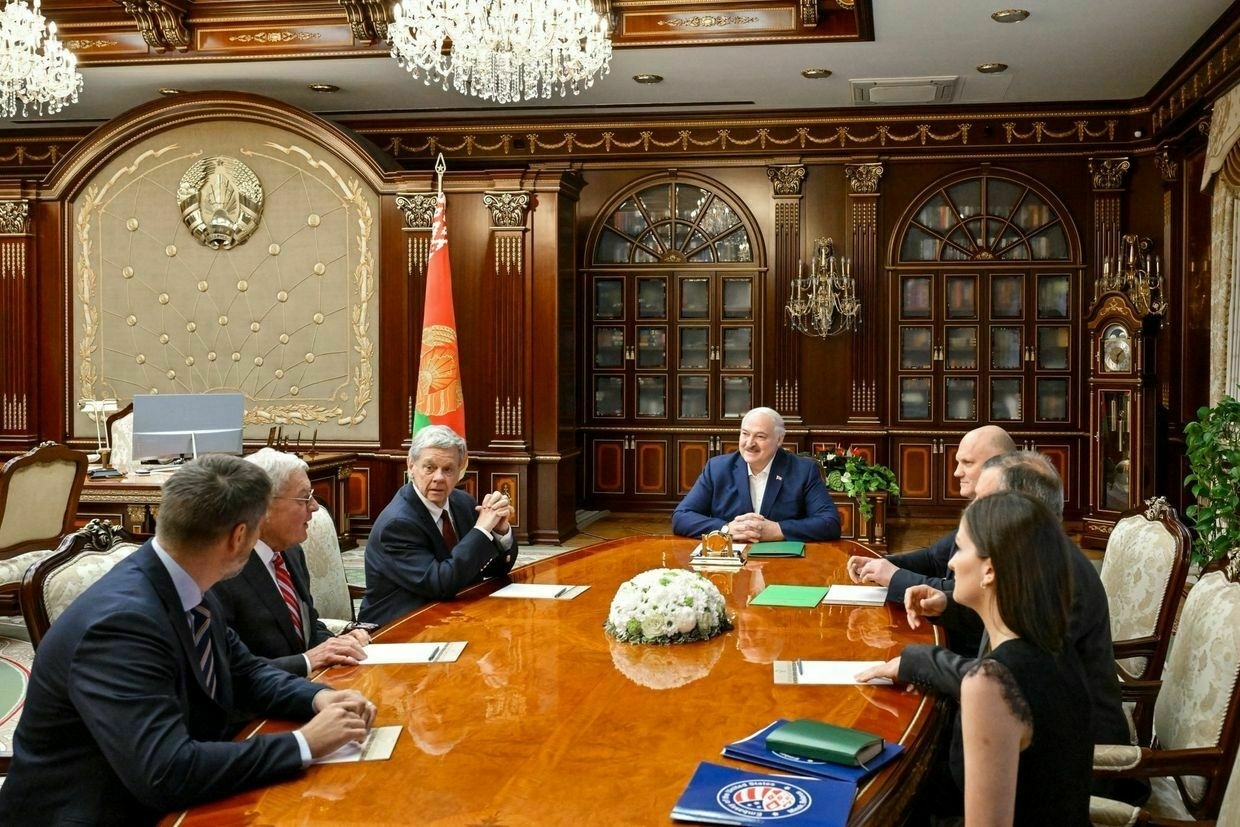
Alexander Lukashenko (C) meets with U.S. presidential envoy Keith Kellogg and members of the American delegation in Minsk, Belarus, on June 21, 2025. (X/Keith Kellogg) The U.S. withdrew its diplomats and shut down embassy operations in Minsk in February 2022, following Russia’s full-scale invasion of Ukraine, which involved the use by the Russian military of Belarusian territory. According to Kavaleuski, the reopening of the embassy lies within U.S. interests in observing and gathering information on the ground. Reopening at the Charge d'Affaires level, as opposed to the ambassadorial level, does not imply any formal recognition of Lukashenko’s legitimacy.
“Without Europe's participation, the ‘de-isolation’ of the Belarusian regime will not be as effective.”
On sanctions relief, Rybakov and Natallia Esismant, Lukashenko’s press secretary, noted that this had been among the priority topics of the discussion. The New York Times also reported that the matter was discussed during Khristopher Smith’s visit to Belarus in February.
“According to our information, Lukashenko is setting a condition for the lifting of the American sanctions on (potash producer) Belaruskali,” opposition activist and leader of the People’s Anti-Crisis Management initiative, Pavel Latushka, told the Kyiv Independent.
“The second is the financial sector, which enables financial payments,” he added. “The third is the Belavia (…) aircraft fleet, which includes (Lukashenko’s) planes.”
In 2019, before Belarus spiraled into political turmoil, potash, its top export, brought in approximately $2.9 billion in export revenues. After the EU and U.S. export restrictions were put in place, Belarus’s share of the global potash market dropped from 18% in 2021 to 8% in 2023, according to the International Food Policy Research Institute. Around 5% of the market was lost in the United States.
“But without Europe's participation, the ‘de-isolation’ of the Belarusian regime will not be as effective,” Rudnik from the Center for New Ideas told the Kyiv Independent, noting that while the U.S. can cancel its own sanctions, Washington would have to lobby for their relief in Europe.
Analysts agree that to restore the flow of this crucial export, Belarus needs to ease European sanctions and overcome opposition from Lithuania, home to Klaipeda seaport, formerly the chief transit hub for Belarusian potash.
Initially introduced in 2021 for human rights abuses, European sanctions on Belarusian potash were re-qualified as sanctions for Minsk’s support for Russia’s war against Ukraine, making them impossible to cancel until the war ends, former diplomat Kavaleuski says, citing his recent exchanges in Brussels.
Belarus, in contrast, expects reciprocal steps and a "good-neighborly approach” after releasing citizens of Estonia, Latvia, and Poland, said Belarus’s KGB Chief Ivan Tsertsel on state-run media, in an apparent reference to European opposition to sanctions relief. Notably, no Lithuanian citizens were included in the release.
But the European Union has so far shown no inclination to reduce restrictions on Lukashenko. Quite the opposite: the 18th sanctions package, recently blocked by Hungary and Slovakia, proposes to ban all transactions with Belarusian banks, further tightening restrictions against Belarus.
"It’s Lukashenko who pushes Belarus closer to Russia because it’s comfortable for him."
And Lithuania, one of the EU member states with the strongest voice on the Belarusian issue, sees no grounds for reconsidering sanctions yet, according to Lithuanian Foreign Minister Kęstutis Budrys. Aware of the potential for a veto by Hungary or Slovakia on Europe-wide sanctions, the Baltic state is developing legislation for national economic sanctions that would provide for the introduction of personal and sectoral restrictions.
While thankful for the release and hopeful for more good news, the Belarusian opposition is cautious about rewarding the regime too soon.
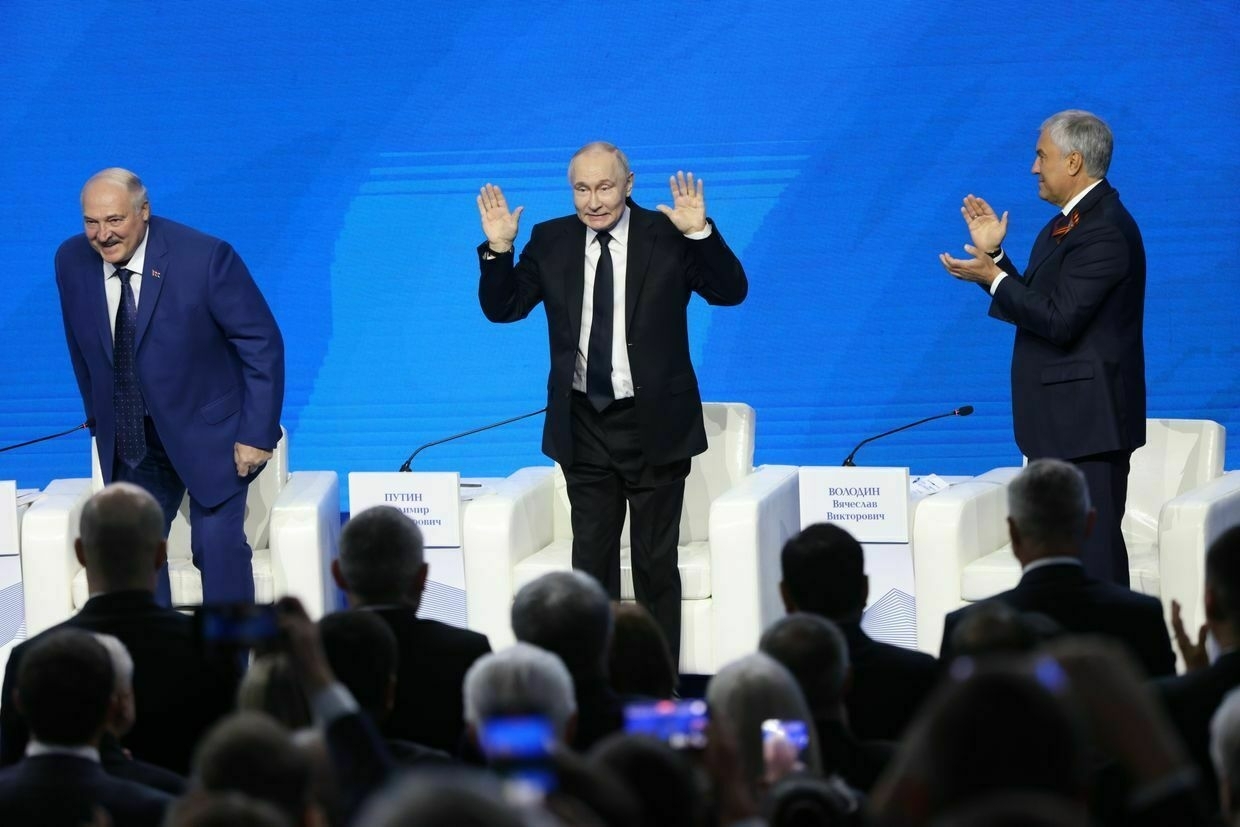
Russian President Vladimir Putin (C), Belarusian President Alexander Lukashenko (L), and State Duma Chairman Vyacheslav Volodin (R) attend the Great Heritage – Common Future Forum in Volgograd, Russia, on April 29, 2025. (Contributor / Getty Images) “Naturally, if the repression stops, and all the prisoners are released, it would open new possibilities, and one could talk about certain relief from the American sanctions,” Tsikhanouskaya’s advisor Viachorka says, adding that at this point, only 1.5% of the country’s 1,100 political prisoners have been released through U.S. mediation.
“There’s no trust in Lukashenko,” said exiled activist Latushka, who is known for his more hawkish approach to contacts with the Lukashenko regime.
“Over the 30 years of his rule, Lukashenko has repeatedly used this scheme of easing sanctions by making cosmetic concessions to the West.”
Latushka argues that sanctions should be eased only after the release of all political prisoners, a halt to repression, and the decriminalization of political life within the country. Even after that, restrictions should be suspended but not cancelled to ensure the possibility of swift reinstatement in case of backsliding by Minsk, he said.
But having released 14 prisoners, Belarusian KGB Chief Tsertsel reported that another 14 foreign and Belarusian citizens had been arrested in Belarus on charges of espionage and high treason in 2025 — in a sign the regime's "conveyor belt" of repression has far from slowed down.
Washington's interest in MinskFollowing his visit to Minsk, Kellogg shared that while his deputy John Coale led discussions on the release of prisoners, he had focused on the Russia-Ukraine War.
“We know Trump is, first and foremost, a dealmaker, and secondly, that success is important to him,” Rudnik said of the interest of the Trump administration in dealing with Belarus.
“And when this does not happen for a long time, especially when he promised so much in his election campaign, it becomes necessary to compensate for the lack of these victories with smaller victories, perhaps even a lot of them,” she said.
Observers interviewed by the Kyiv Independent do not believe Belarus could serve as a credible platform for the stalled Russian-Ukrainian peace negotiations — an idea that has been floated by the Kremlin, but flatly rejected by Ukrainian President Volodymyr Zelensky over Belarus's complicity in the war.
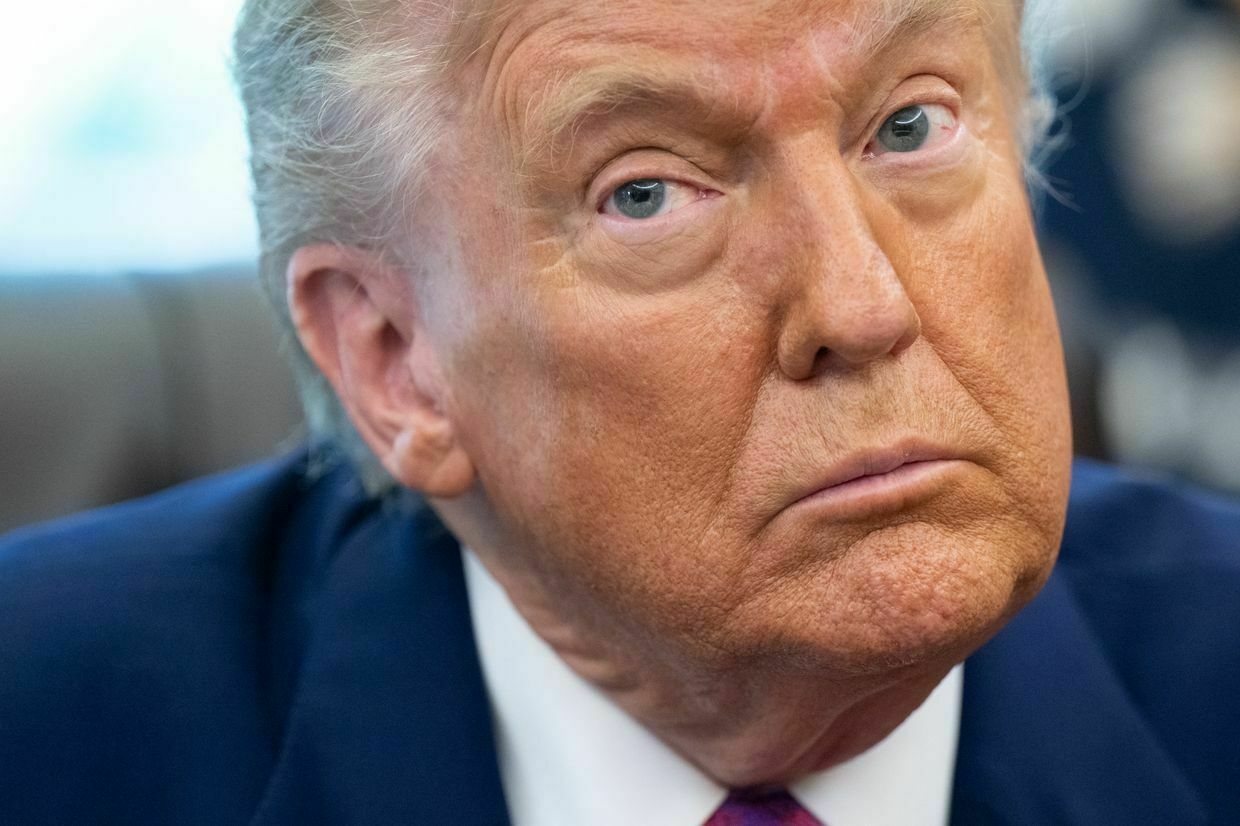
U.S. President Donald Trump at the White House in Washington, DC, on June 10, 2025. (Saul Loeb / AFP via Getty Images) While not having sent his troops into battle in Ukraine, Lukashenko let the Russian army use Belarusian territory to mount attacks on Ukraine at the start of the invasion. He also reoriented the Belarusian military-industrial complex to serve Russian defense contracts, according to a recent report by the Belarusian opposition group Belpol.
Aside from “scoring a win” easier than stopping Russia’s war, Washington may have warned Belarus against becoming more deeply engaged in the Kremlin’s war against Ukraine, or escalating tensions with the NATO and EU member states bordering Belarus, analysts suggest.
“Belarus is strategically placed on NATO’s eastern flank between Russia and western states,” Tsikhanouskaya’s advisor Viachorka says. “The less of a threat Belarus is, the less defense spending for America.”
Belarus is set to host the Zapad-2025 (West 2025) joint military drills with Russia in September. After the Russia-Belarus Union Resolve 2021 drills were used to disguise the buildup of Russian troops ahead of an all-out invasion, any joint drills in Belarus are now seen as a serious cause for concern among its neighbors.
In an apparent effort to assuage those fears, in May, Belarusian Defense Minister Viktar Khrenin announced the drills would involve fewer troops and would be held at a location further from the border.
The Kellogg visit, Latushka believes, also had the aim of determining whether Lukashenko is capable of altering his domestic or foreign policy, and the extent of the Kremlin’s influence over him.
Americanist and advisor to the Euro-Atlantic Affairs Agency Anton Penkovski told the Kyiv Independent that the Trump administration might be considering the possibilities for the “Finlandisation” of Belarus, a term that implies Minsk would loosen its military ties with Moscow without fully breaking off ties.
And while having nothing to lose in the event of negotiations failing, U.S. diplomats might also have been investigating Lukashenko’s ability to act independently and engage in separate negotiations in the event of Russia being weakened.
Indeed, Washington has a history of engaging with Minsk at times when tensions with Moscow heighten.
Viachorka, however, is not so sure.
“We often hear the message that we need to save Lukashenko from Russia, including from Belarusian propaganda,” he says. “But it’s Lukashenko who pushes Belarus closer to Russia because it’s comfortable for him.”
Subscribe to the NewsletterBelarus Weekly<span data-sanitized-id="belarus-weekly-info" data-sanitized-class="belarusWeekly__info"></span> <button data-sanitized-id="belarus-weekly-subscribe-btn" data-sanitized-class="belarusWeekly__form_button"> <span data-sanitized-class="belarusWeekly__form_label">Join us</span> <path d="M4.45953 12.8114H7.90953C8.00052 12.8127 8.09085 12.7958 8.17517 12.7616C8.25949 12.7274 8.3361 12.6766 8.40044 12.6123C8.46478 12.548 8.51556 12.4714 8.54975 12.387C8.58395 12.3027 8.60088 12.2124 8.59953 12.1214C8.58173 11.9269 8.48974 11.7467 8.34265 11.6183C8.19555 11.4898 8.00465 11.4229 7.80953 11.4314H4.45953C4.27653 11.4314 4.10103 11.5041 3.97163 11.6335C3.84223 11.7629 3.76953 11.9384 3.76953 12.1214C3.76953 12.3044 3.84223 12.4799 3.97163 12.6093C4.10103 12.7387 4.27653 12.8114 4.45953 12.8114Z" fill="white"></path> <path d="M8.6 15.0114C8.60135 14.9204 8.58442 14.83 8.55022 14.7457C8.51603 14.6614 8.46525 14.5848 8.40091 14.5205C8.33656 14.4561 8.25996 14.4053 8.17564 14.3711C8.09131 14.3369 8.00098 14.32 7.91 14.3214H2.69C2.507 14.3214 2.3315 14.3941 2.2021 14.5235C2.0727 14.6529 2 14.8284 2 15.0114C2 15.1944 2.0727 15.3699 2.2021 15.4993C2.3315 15.6287 2.507 15.7014 2.69 15.7014H7.81C8.00511 15.7099 8.19602 15.643 8.34311 15.5145C8.49021 15.386 8.5822 15.2058 8.6 15.0114Z" fill="white"></path> <path d="M24.4202 6.01122H7.55022C7.43403 5.99626 7.31641 5.99626 7.20022 6.01122L7.08022 6.06122C6.85578 6.16602 6.66595 6.33276 6.53308 6.54181C6.4002 6.75086 6.32982 6.99352 6.33022 7.24122C6.32744 7.43266 6.36832 7.62222 6.44976 7.79549C6.5312 7.96876 6.65105 8.1212 6.80022 8.24122L12.5802 13.4512L6.89022 18.7112C6.71923 18.8375 6.57973 19.0016 6.4826 19.1907C6.38546 19.3797 6.33331 19.5887 6.33022 19.8012C6.32652 20.0535 6.3952 20.3015 6.52812 20.516C6.66105 20.7304 6.85264 20.9023 7.08022 21.0112C7.14691 21.0484 7.21729 21.0786 7.29022 21.1012C7.46476 21.1609 7.64625 21.1979 7.83022 21.2112H24.5102C24.8263 21.2048 25.1378 21.1355 25.4268 21.0074C25.7158 20.8792 25.9763 20.6948 26.1932 20.4648C26.4101 20.2349 26.579 19.9641 26.6901 19.6681C26.8012 19.3722 26.8522 19.0571 26.8402 18.7412V8.47122C26.8278 7.82952 26.5701 7.21694 26.12 6.7594C25.6699 6.30185 25.0616 6.03412 24.4202 6.01122ZM8.57022 8.08122L7.92022 7.49122H24.4202L16.4902 14.6812C16.407 14.7305 16.312 14.7565 16.2152 14.7565C16.1185 14.7565 16.0235 14.7305 15.9402 14.6812L8.57022 8.08122ZM7.73022 19.7912L8.48022 19.1112L13.4802 14.5812L14.8802 15.8612C15.1804 16.157 15.5793 16.3315 16.0002 16.3512C16.4212 16.3315 16.82 16.157 17.1202 15.8612L18.5202 14.5812L24.2002 19.8012H7.73022V19.7912ZM25.3502 18.7112L19.6602 13.5912L25.3502 8.37122V18.7112Z" fill="white"></path> </button> </div>Why Russian economy warnings might be the only thing out of Moscow you can actually believeIn a rare public sign that all is not well in Russia, two high-ranking Moscow officials last week issued separate warnings about the state of the country’s economy. Russian Central Bank Governor Elvira Nabiullina and Economy Minister Maxim Reshetnikov both highlighted that amid the Kremlin’s full-scale war against Ukraine, the tools Moscow once relied on to maintain wartime growth are nearly exhausted. Almost immediately, Russian President Vladimir Putin on June 20 dismissed the concerns, clai The Kyiv IndependentTim Zadorozhnyy
The Kyiv IndependentTim Zadorozhnyy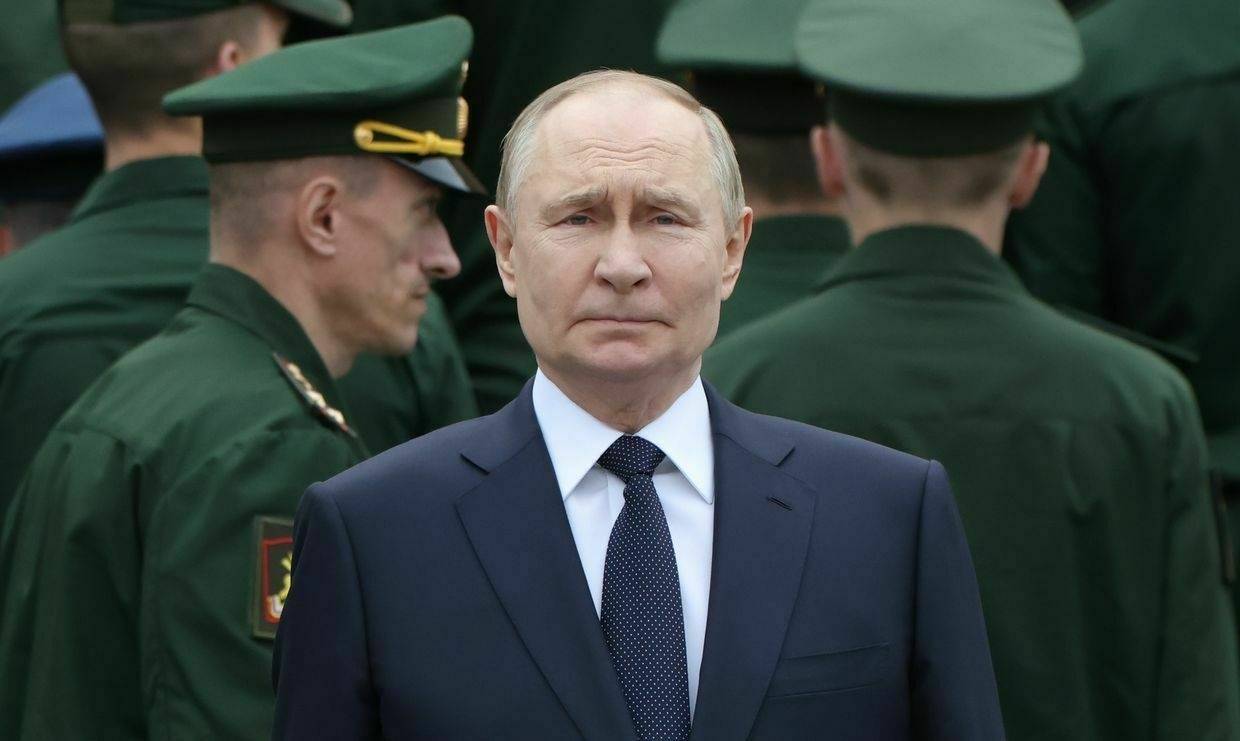
Ukraine war latest: US signals more Patriot missiles for Kyiv after Zelensky-Trump talks at NATO summit
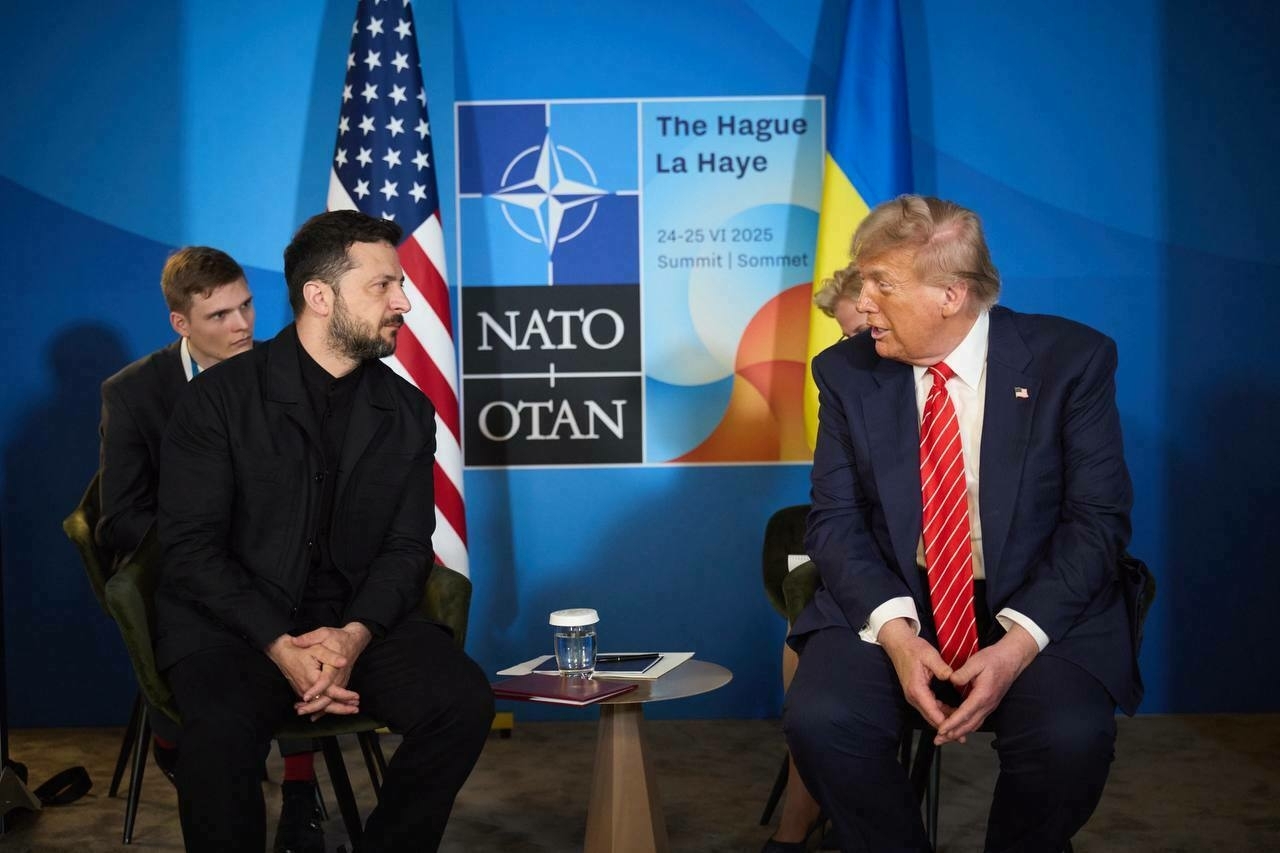
Key developments on June 25:
- Zelensky, Trump hold talks on NATO summit sidelines
- ‘Something unknown’ hits key Russian drone facility in Taganrog, Ukrainian official says
- Russia has launched over 28,000 Shahed drones at Ukraine since 2022, with nearly 10% fired in June alone, Zelensky says
- Donetsk Oblast city “on brink of humanitarian catastrophe,” governor says as drones cripple infrastructure
President Volodymyr Zelensky met with U.S. President Donald Trump at the NATO summit in The Hague on June 25.
The meeting lasted approximately 50 minutes, according to Suspilne. In a post on X, Zelensky described the conversation as “long and substantive."
“We covered all the truly important issues,” he wrote. “We discussed how to achieve a ceasefire and a real peace. We spoke about how to protect our people. We appreciate the attention and the readiness to help bring peace closer."
Zelensky said that he briefed Trump about the situation on the battlefield.
“Putin is definitely not winning,” Ukraine’s president said.
The two leaders also discussed the purchase of American air defense systems as well as the potential for co-production of drones.
“Ukraine is ready to buy this equipment and support American weapons manufacturers,” Zelensky added.
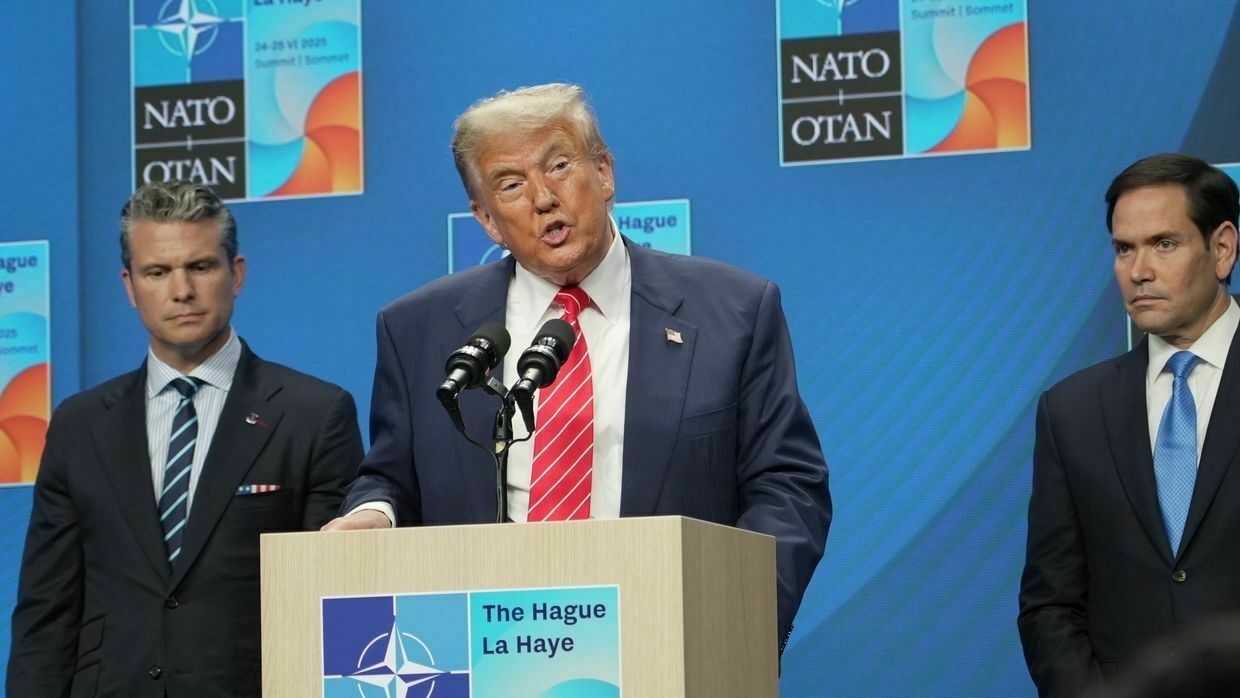
U.S. President Donald Trump speaks to media at the start of the second day of the 2025 NATO Summit in The Hague, Netherlands on June 25, 2025. (Nick Allard/The Kyiv Independent) Speaking at a press conference following the meeting, Trump said that it “couldn’t have been nicer."
“I think it’s a great time to end it (war). I’m going to speak to Vladimir Putin, see if we can get it ended,” Trump said. “He (Zelensky) is fighting a brave battle, it’s a tough battle."
He also signaled support for sending to Kyiv additional missiles for its Patriot air defense systems.
“They (Ukraine) do want to have the anti missiles, as they call them, the Patriots, and we’re going to see if we can make some available,” Trump said.
“They are very hard to get. We need them too. We are supplying them for Israel, and they are very effective."
NATO member states have agreed to a new defense spending benchmark, committing to allocate 5% of their gross domestic product annually to defense and security-related expenditures by 2035.
Unlike in previous years, this year’s NATO statement does not include a direct condemnation of Russia’s actions, unlike the communique issued during the 2024 NATO summit in Washington, which explicitly condemned Russia’s full-scale invasion of Ukraine.
But the leaders reaffirmed support for Ukraine, stating that direct contributions to Ukraine’s defense and industrial capacity will be counted toward the 5% total.
With Trump disengaged and EU complacent, Ukrainian reforms lose momentumRussia’s all-out war has accelerated Ukraine’s push to join the European Union and NATO, as well as its dependency on Western loans and aid. Before, these things would have been heavily preconditioned on Ukraine implementing crucial reforms. However, the war has also eased the pressure on Kyiv to carry outThe Kyiv IndependentOleg Sukhov
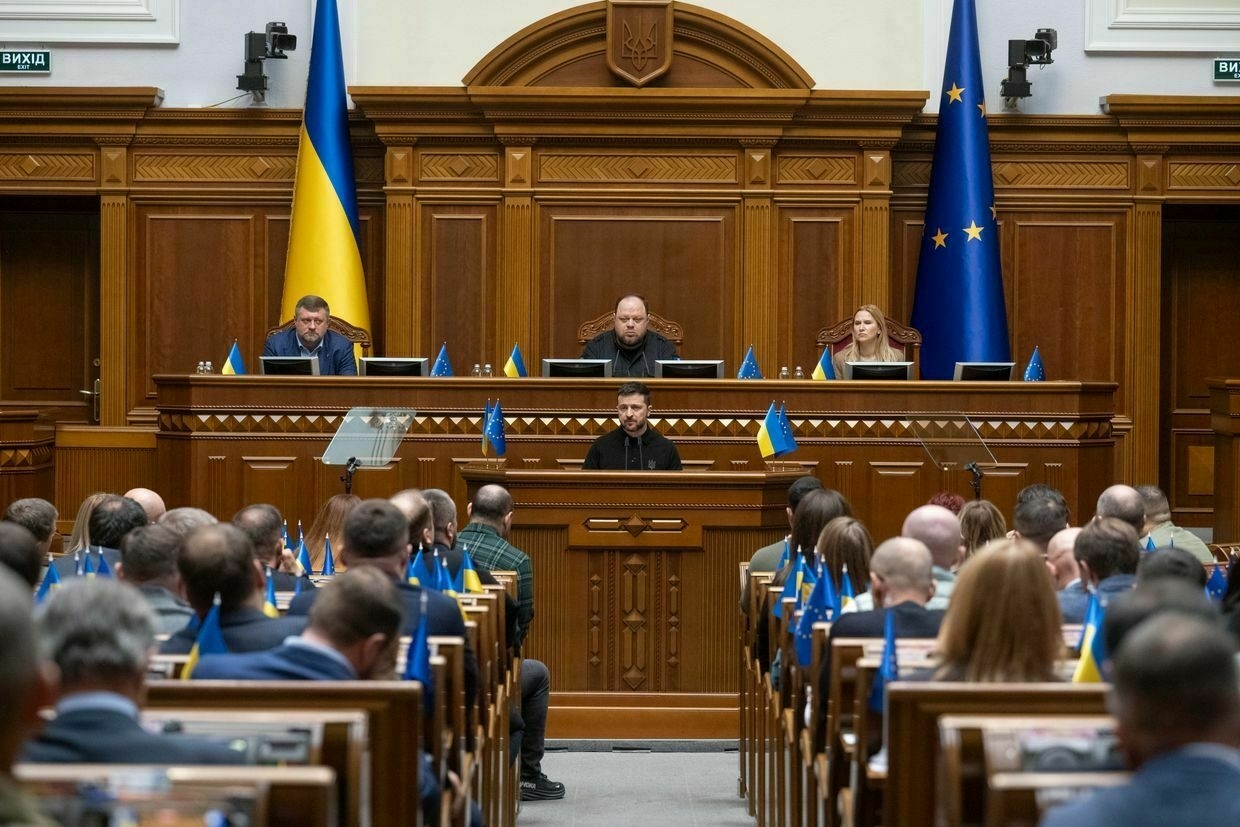
‘Something unknown’ hits key Russian drone facility in Taganrog, Ukrainian official saysA key military-industrial site in the Russian city of Taganrog linked to Moscow’s production of combat drones and electronic warfare systems was damaged overnight, a Ukrainian official said on June 25, amid Russian reports of Ukrainian drones targeting the area.
“Something unknown flew into the Atlant-Aero plant in Taganrog,” Andrii Kovalenko, head of the counter-disinformation center at Ukraine’s National Security and Defense Council said.
“This is an important node in the Russian military-industrial complex, specializing in components for combat drones and control systems."
Kovalenko said the plant is involved in the production of “Orion” drones, electronic warfare complexes, and digital integration systems for strike FPV (first-person-view) drones and loitering munitions.
Russian authorities reported a wave of overnight Ukrainian drone attacks across multiple regions, including Rostov, which borders eastern Ukraine. Russia’s Defense Ministry said its forces shot down 40 Ukrainian drones over several areas, including the Crimean Peninsula and seven over the Rostov region.
Rostov Governor Yuri Slyusar said on Telegram that while there were no casualties, the strikes allegedly caused a fire at a sports complex and damaged a high school and two residential buildings in Taganrog. In nearby Azov, a grain warehouse and industrial facility were hit, he added, without providing further detail.
The Kyiv Independent could not verify the claims.
Why Russian economy warnings might be the only thing out of Moscow you can actually believeIn a rare public sign that all is not well in Russia, two high-ranking Moscow officials last week issued separate warnings about the state of the country’s economy. Russian Central Bank Governor Elvira Nabiullina and Economy Minister Maxim Reshetnikov both highlighted that amid the Kremlin’s full-scale war against Ukraine, the tools Moscow once relied on to maintain wartime growth are nearly exhausted. Almost immediately, Russian President Vladimir Putin on June 20 dismissed the concerns, clai The Kyiv IndependentTim Zadorozhnyy
The Kyiv IndependentTim Zadorozhnyy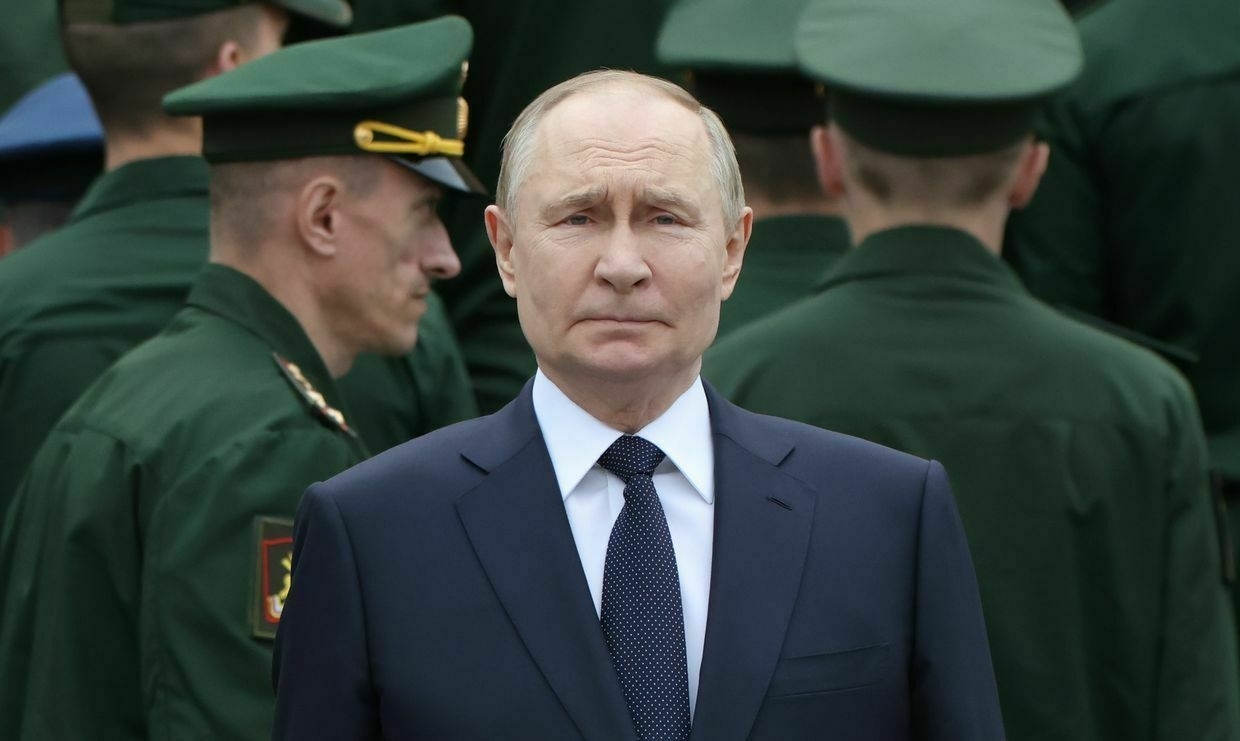
Russia has launched over 28,000 Shahed drones at Ukraine since 2022, with nearly 10% fired in June alone, Zelensky saysSince the start of Russia’s full-scale invasion, Moscow has launched 28,743 Shahed-type drones at Ukraine — with 2,736, or roughly 9.5%, fired in June 2025 alone, President Volodymyr Zelensky said during a speech to the Dutch Parliament in The Hague.
Speaking on June 24, he stressed that Russia would never have been able to carry out such drone attacks without support from Iran, and Ukraine, in turn, could not have intercepted most of the drones without the help of its international partners.
Zelensky called for accountability and emphasized that rules must apply to all — including the Kremlin: “Putin pretends not to understand the rules that shape the modern world. And here, in The Hague, I want to say this very clearly to him: There is a rule — do not kill. There is a rule — do not treat people like beasts. There is a rule — do not destroy cities and villages. There is a rule — do not sponsor terror. There is a rule — do not steal children. And if you break these rules, you will be held accountable."
Investigation: How Russia prepares its strategic missile plant for ‘eternal war’Key findings: * Despite international sanctions, Russia’s strategic missile plant was able to import complex machinery to dramatically increase missile production. * The Kyiv Independent has identified the equipment supplied to the plant, as well as the supply chains, mostly from China. * We located the plant’s new premises, built to house theThe Kyiv IndependentAlisa Yurchenko
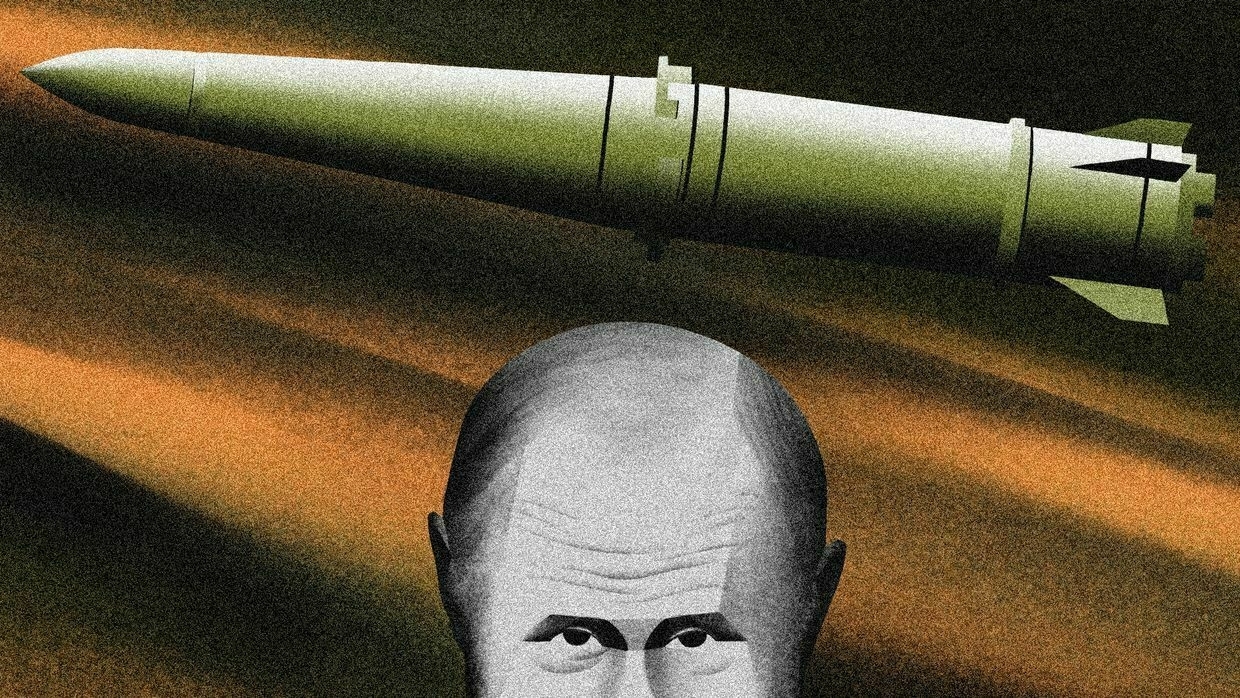
Donetsk Oblast city ‘on brink of humanitarian catastrophe,’ governor says as drones cripple infrastructureThe front-line city of Kostiantynivka in Ukraine’s Donetsk Oblast is facing a looming “humanitarian catastrophe” as ongoing Russian strikes destroy critical infrastructure and leave thousands without basic services, Governor Vadym Filashkin said on June 25.
Kostiantynivka, in eastern Donetsk Oblast, lies just 10 to 15 kilometers (6 to 9 miles) from several areas currently occupied by Russian forces, according to battlefield mapping site DeepState. The city has come under intensified attacks in recent months as Moscow pushes westward beyond its gains around other nearby towns.
According to Filashkin, nearly half the city is without electricity due to shelling, and 1,900 households in the Santurynivka district have no access to gas, with restoration currently impossible. Water is supplied just once a day from 5 p.m. to 8 p.m., meeting only 20–25% of the city’s needs.
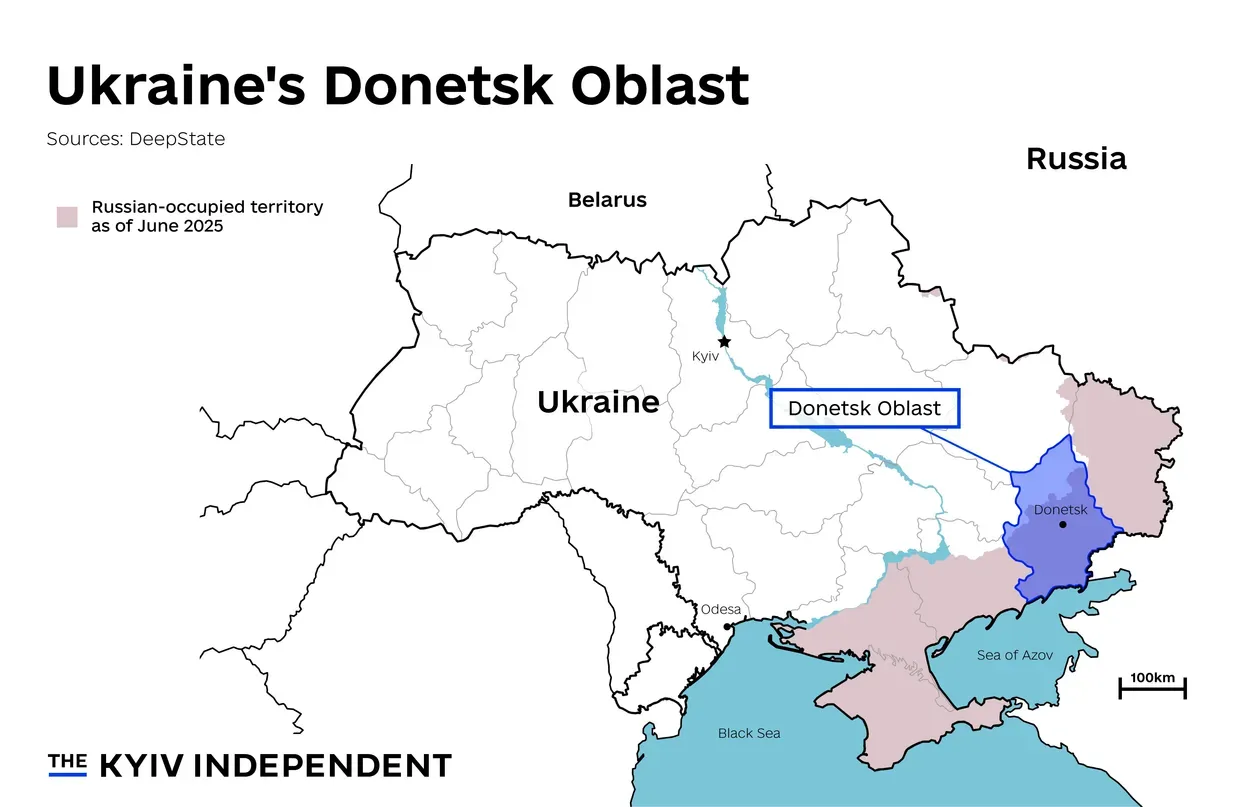
Ukraine’s Donetsk Oblast (Nizar al-Rifai/The Kyiv Independent) Drone strikes have halted all city bus operations, while the suburban route to Druzhkivka, a nearby town, is operating on a limited basis, Filashkin said.
Yevhen Alkhimov, press officer of Ukraine’s 28th Mechanized Brigade, which is fighting near Kostiantynivka, told the Kyiv Independent that “the greatest danger at the moment comes from first person view (FPV) drones, including fiber optic models."
“The enemy is trying to control all logistics and communication routes,” he said, adding: “The Russians’ goal right now is not so much to destroy the city as it is to make it unsuitable for defense by controlling all the roads."
Alkhimov said Russian forces were deliberately targeting vehicles including civilian buses.
“They are trying to fully control all movement in the city using their drones,” he said.
Authorities have installed seven large water tanks and 11 smaller containers throughout the city, in addition to 12 wells, six of which are equipped with filtration systems. Five “Points of Invincibility,” Ukraine’s emergency support hubs, are operational, with two more on standby.
Despite the risks, emergency crews, doctors, utility workers, and local officials continue to work in the city.
“Civilians still remain in the city, and life is becoming more and more difficult for them,” Alkhimov said.
“There are fewer people left, the curfew is now longer, but nonetheless, people are still there, and it is truly very dangerous for them to stay in the city."
Filashkin urged those still in the city to evacuate.
Note from the author:
Ukraine War Latest is put together by the Kyiv Independent news desk team, who keep you informed 24 hours a day, seven days a week. If you value our work and want to ensure we have the resources to continue, join the Kyiv Independent community.
Ukrainian Forces destroy Russian freight train near Tokmak
Ukrainian Forces have targeted and disrupted a Russian cargo train near Tokmak in the occupied Zaporizhzhia region. The operation, which took place at 11:15 AM, involved a combined effort from various units the Ukrainian Forces, who stopped the train on its tracks with none other than a precision strike, slicing it in half.
This train, comprising over 40 cars loaded with tanks, containers, and likely ammunition, was effectively split in two. Following this maneuver, Ukrainian units systematically targeted each train car.
This heavily laden train was transporting fuel and containers. Petro Andriushchenko highlighted that this operation marks a significant blow to Russian logistics, particularly carried out by the Southern Defense Forces. "A brilliant operation. P.S. Proofs are in place. The map location is highly accurate. But for now, let's stay focused on safety. The rest is coming. It will be something to watch, trust me, it's going to be pure ecstasy," concluded Andriushchenko.
Andriushchenko previously reported that a convoy of Russian military equipment was spotted passing through Mariupol heading towards the Rostov region. The vehicles were marked with symbols used to denote their Crimean origin. It has also been noted that Russian assault troops are unwaveringly advancing, with Ukrainian defenders remarking on what appears to be a lack of situational awareness among them, seemingly clueless as they march directly into fire traps.
Russia's losses have exceeded one million: the assault on eastern Ukraine continues
As Ukraine bleeds, Western opera welcomes back pro-Putin Russian singer Anna Netrebko
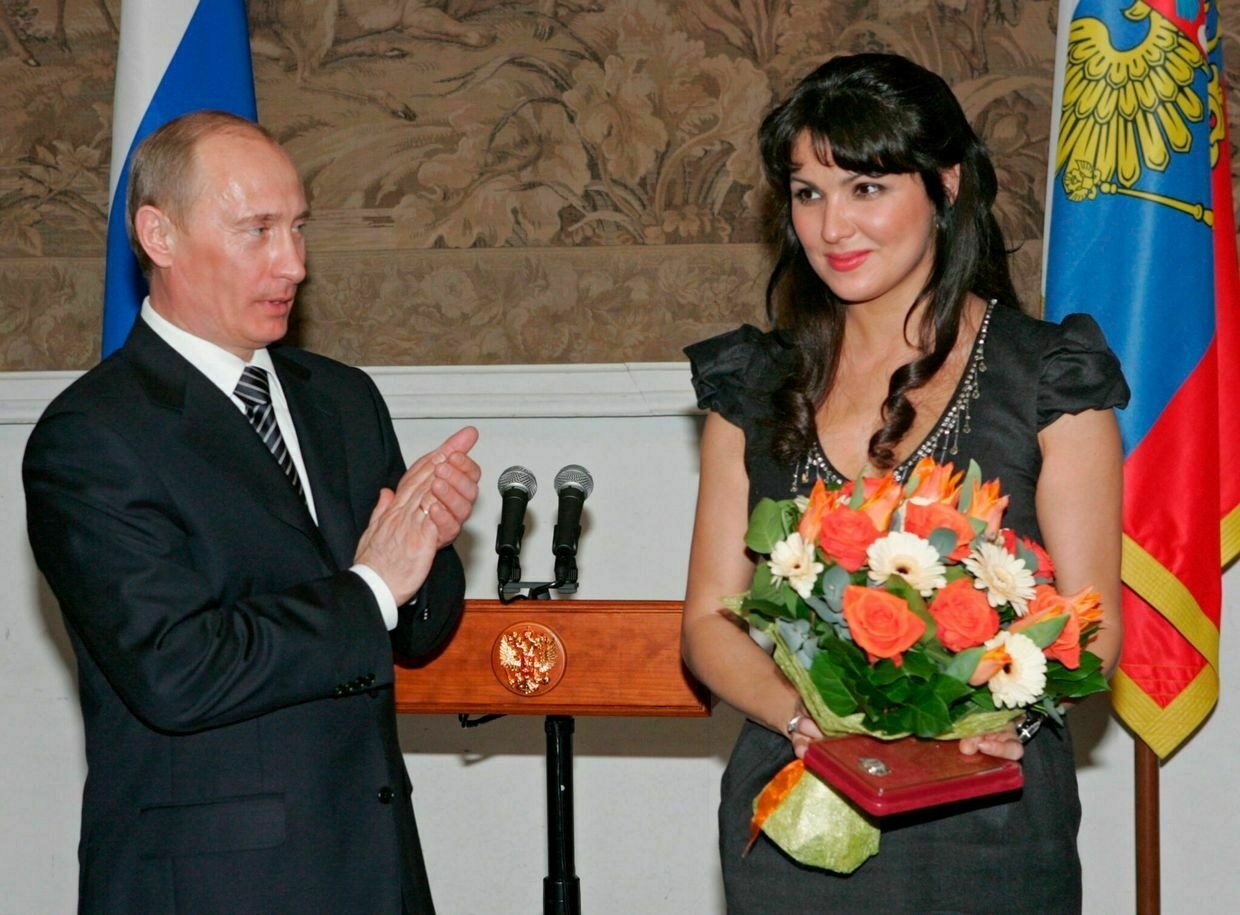
More than three years into Russia’s full-scale war against Ukraine, many Western cultural institutions that had distanced themselves from Russian artists as a gesture of solidarity with Ukraine are now reversing course.
The U.K.’s Royal Ballet and Opera House announced on June 23 that its 2025-2026 cinema season, which is screened across 1,500 cinemas around the world, will kick off in early October with a performance of “Tosca” starring Russian soprano opera singer Anna Netrebko.
Once a leading figure in the opera world, Netrebko saw her performances canceled after 2022, following a history of remarks where she praised Russian President Vladimir Putin and defended Russian imperialism.
Though she issued a statement condemning the full-scale invasion that year, Netrebko has stopped short of ever directly criticizing Putin, who granted her Russia’s highest artistic honor — the title of People’s Artist — in 2008.Since the start of the full-scale invasion, many Ukrainians have argued that Russian culture can’t be separated from the country’s history of imperialism — a worldview they say is deeply embedded in its literature, music and art, and continues to fuel its aggression toward Ukraine and beyond.
What’s wrong with NetrebkoFollowing Russia’s full-scale invasion of Ukraine in 2022, the Metropolitan Opera in New York canceled a series of scheduled performances by Netrebko, reportedly expecting her to publicly denounce Putin.
In response, Netrebko filed a lawsuit in 2023 seeking at least $360,000 in damages and accusing the Met of defamation and breach of contract.
While she spoke out against the full-scale war in a statement from May 2022, Netrebko also declared “I love my homeland of Russia and only seek peace and unity through my art.”
Netrebko has repeatedly expressed views and took actions prior to 2022 that signaled admiration — even support — for the Russian authoritarian regime.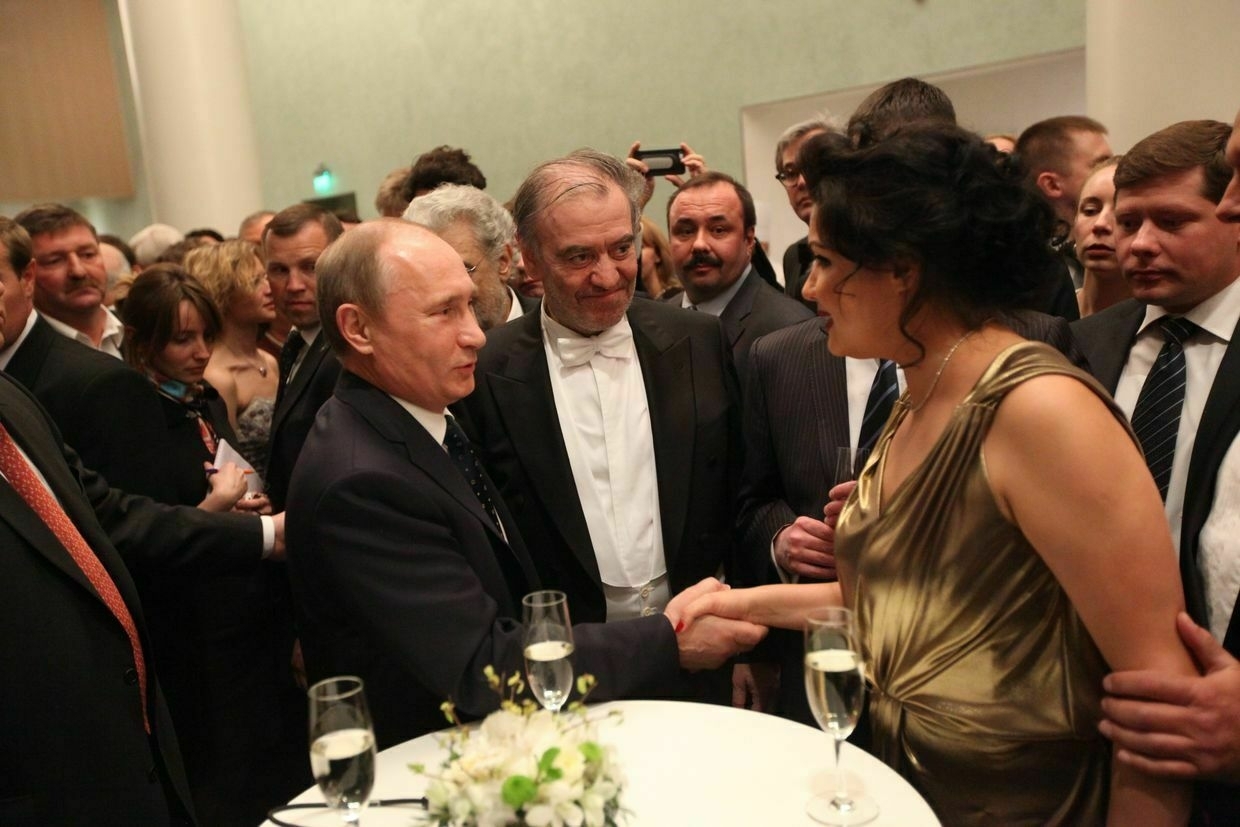
Russian President Vladimir Putin, conductor Valery Gergiev, and singer Anna Netrebko attend the opening of the new Mariinsky II Theatre in St. Petersburg, Russia, on May 2, 2013. (Sasha Mordovets / Getty Images) “I think she is always doing what benefits her career. Until 2022, being Putin’s ‘court soprano’ and a protege of conductor Valery Gergiev — another pillar of the Kremlin’s influence in the world, who was sanctioned by the government of Canada just few days ago — was very good for her,” Ukrainian classical pianist Pavlo Gintov, who lives and performs in the West, told the Kyiv Independent.
“Since 2022, Netrebko has been trying to balance two worlds: continuing her performances in the West while avoiding an open break with Putin’s regime. And, as you can see, so far she has been quite successful.”
After Russia’s invasion of Georgia, Netrebko told Russian state media in 2009, “I am always unambiguously for Russia,” dismissing international coverage of the war as “extremely negative” attacks on her country.
While Western cultural institutions rekindle ties with Russian artists, Ukrainian artists continue to be killed.
In a Newsweek profile from 2011, Netrebko laughed off rumors from the Russian tabloids claiming she had been Putin’s lover, adding “I’d love to have been” and that “he’s a very attractive man” with “strong, male energy.”
In 2014, Netrebko made a donation of one million rubles to an opera house in Russian-occupied Donetsk, claiming it was an act of solidarity for her fellow artists suffering from the war and that there was nothing political about it.
However, she was photographed alongside Oleg Tsaryov, a pro-Russian Ukrainian politician, at the event in St. Petersburg where she made the donation. Both were seen holding the flag of the Russian occupation forces in Donetsk.
Putin praised Netrebko's "life-affirming spirit" and "clear civic stance" in a public tribute marking her 50th birthday in 2021 that was published on the Kremlin's website.
“Only a photo with the bandits and their Moscow handlers could be a better illustration of the global disgrace of the Royal Opera House,” wrote Ukrainian Foreign Minister Sergiy Kyslytsya on June 24 on X, formerly known as Twitter, referencing the notorious photo in response to the Royal Opera House’s lineup announcement.
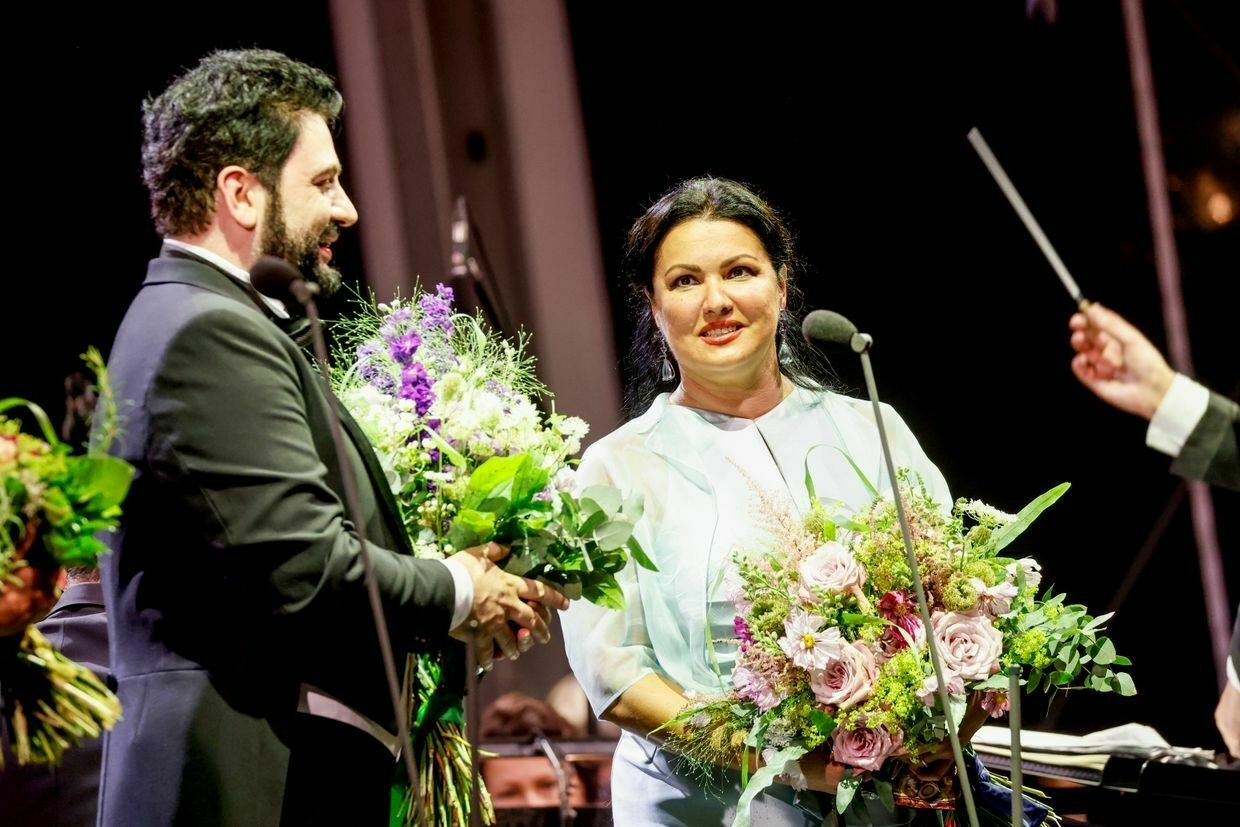
Azerbaijani opera singer Yusif Eyvazov and Russian opera singer Anna Netrebko, perform on stage at the Thurn & Taxis Castle Festival in Regensburg, Germany, on July 23, 2022. (Isa Foltin / Getty Images) 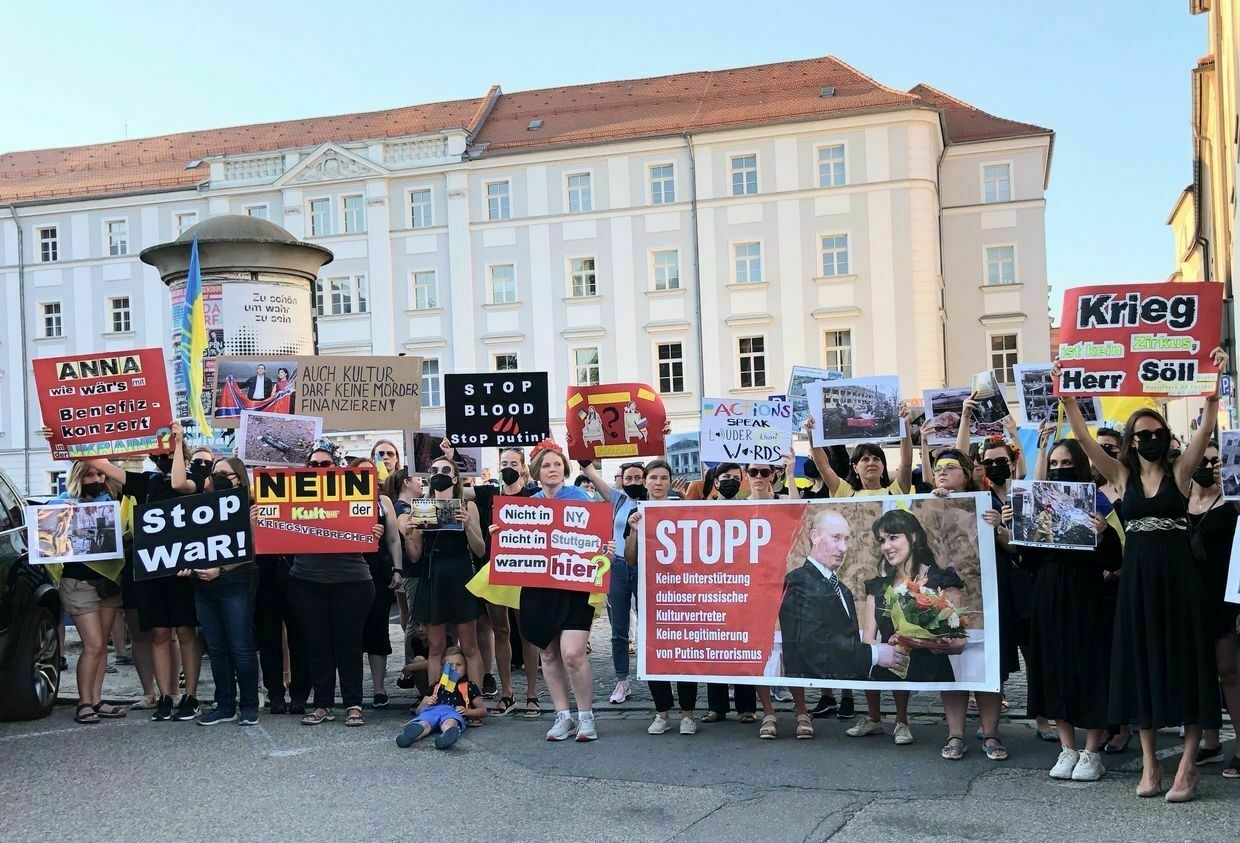
People protest against opera singer Anna Netrebko's appearance at the Schlossfestspiele in Regensburg, Bavaria, Germany, on July 22, 2022. (Ute Wessels / Picture Alliance via Getty Images) Larger trendNetrebko’s return to Western opera marks a tentative shift in the West’s cultural landscape, as institutions begin to welcome Russian artists back more than three years after their country’s full-scale war against Ukraine cast a long shadow over their global standing.
Among these cultural figures are those who support Putin outright, those who oppose the war, or those who are deliberately trying to blur the line between the two.
As Western institutions move toward reintegrating Russian cultural figures into their cultural programs, Moscow has intensified its military campaign against Ukraine, launching record numbers of drones and missiles with increasing frequency, causing greater casualties.
This thaw raises ethical questions about complicity and accountability, such as when Russian actor Yura Borisov’s 2024 Oscar nomination for best supporting actor in the film “Anora.”Previously, Borisov starred in a Russian propaganda biopic about Mikhail Kalashnikov, the inventor of the AK-47, which was filmed in Russian-occupied Crimea and released in 2020.
Though Borisov’s name appeared on a 2022 statement by a Russian film actors’ union opposing the full-scale war, he didn’t mention it once during his major press tour for “Anora.”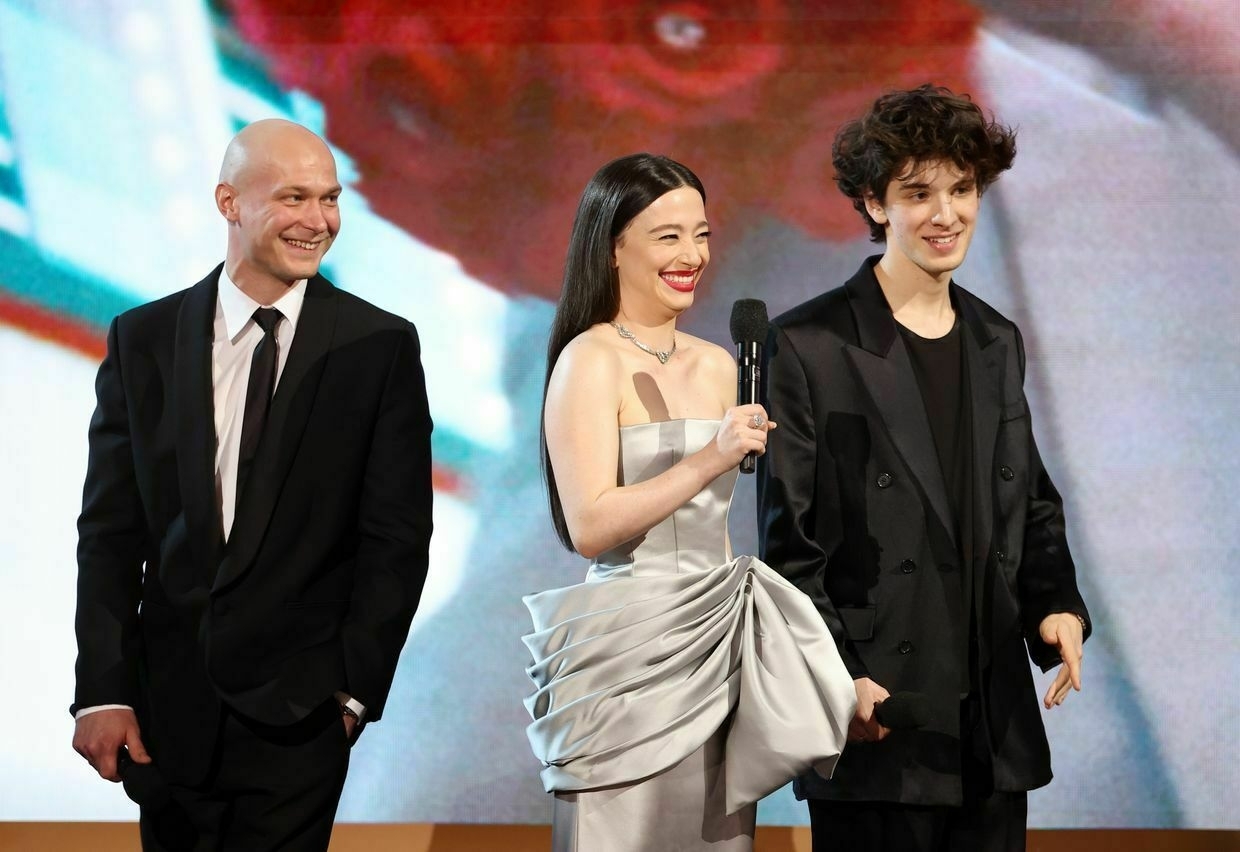
(L-R) Russian actor Yura Borisov, Mikey Madison, and Mark Eydelshteyn speak onstage during the 31st Annual Screen Actors Guild Awards at Shrine Auditorium and Expo Hall in Los Angeles, California, U.S. on Feb. 23, 2025. (Matt Winkelmeyer / Getty Images) Russian journalist Anastasia Trofimova also stirred outrage for her documentary “Russians at War,” which she claimed was meant to “humanize” Russian soldiers fighting in Ukraine “beyond the fog of war.”
Ukrainians and their supporters sought to have the film removed from several international film festivals due to Trofimova’s previous involvement with Russian state media and the documentary’s attempt to dissociate Russian soldiers from war crimes committed in Ukraine. Despite these efforts, a number of screenings have taken place.
The film was screened at three festivals in Canada, and although it was pulled from a number of other international festivals over protests, it remained in competition at the Athens International Film Festival in 2024.At the 2025 Photo London Festival, Russian fashion designer and photographer Gosha Rubchinsky presented his new photo book, “Victory Day,” which romanticizes Soviet army imagery that has been used to rally support amid Russians for the war against Ukraine.
While Western cultural institutions rekindle ties with Russian artists, Ukrainian artists continue to be killed — whether in Russia’s daily strikes on cities or while serving on the front line — underscoring the war’s unrelenting toll on Ukraine’s cultural life.For many Ukrainians, the inclusion of Russian cultural figures in the West is extremely painful, Gintov said — an oversight that ignores the painful reality of a nation still fighting for its survival.
“All this is happening while Russian artists like Netrebko — who openly and vocally supported Putin’s policies for many years, including his invasion of Ukraine in 2014 — are gaining applause in Berlin and in London. Something is fundamentally wrong about it.”Note from the author:
Hi there, it's Kate Tsurkan, thanks for reading my latest article. On the same day I wrote this article, I also wrote another about my friend Victoria Amelina, a Ukrainian author who was killed by Russia, posthumously winning a prestigious literary award. It's bitter and surreal to see the world begin to move on from caring about the ways Russian culture and Russian aggression are connected. Of course, this is not to say that every Russian artist is supportive of the war — but in Netrebko's case, there's a lot of past statements that raise troubling questions. If you like reading this sort of thing, please consider supporting us and becoming a member of the Kyiv Independent today.
‘Everyone says culture has nothing to do with it. It does’ — Ukrainian writer Volodymyr Rafeyenko on Russia’s warUkrainian author Volodymyr Rafeyenko never thought he would write a novel in Ukrainian. He was a native of Donetsk, an eastern Ukrainian city where he grew up speaking Russian and completed a degree in Russian philology. Early on in his career, he was the winner of some of Russia’sThe Kyiv IndependentLiliane Bivings
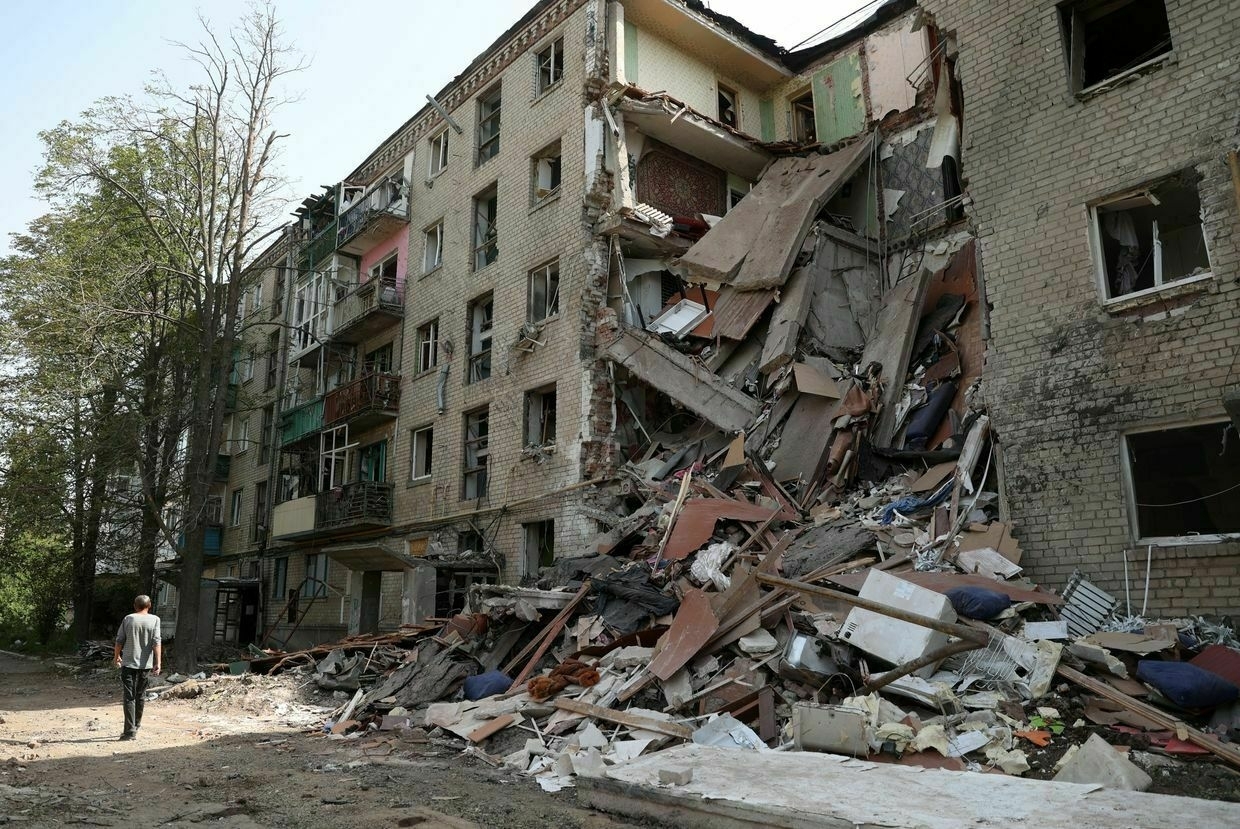
65th Brigade Sees Command Change
Colonel Volodymyr Izbash, commander of the 65th Mechanized Brigade of the Ukrainian Ground Forces, has announced his departure from the position via the unit’s official social media channels. Having taken…
Norway allocates €550 million for Ukraine's drone procurement
Norway has announced that it had allocated NOK 6.5 billion—more than €550 million—for the purchase of drones and related technologies from both Ukrainian and European producers, as confirmed by the Norwegian government.
Drones play a crucial role in Ukraine’s defense efforts, serving in the protection of critical infrastructure and frontline operations. Norway’s contribution is set to significantly bolster Ukraine’s capabilities in drone surveillance and operations. "This funding will aid Ukraine's capacity for necessary surveillance and operations using drones," stated Norwegian Prime Minister Jonas Gahr Støre.
Norway, which joined the Drone Coalition in April, reaffirmed its commitment to enhancing support for Ukraine's defense industry. This development aligns with a March decision made by the Storting (Norwegian Parliament) to increase support for Ukraine through 2025 by NOK 50 billion. The financing not only aims to improve Ukraine's defense systems but also emphasizes the development of independent deterrent capabilities, which Minister of Defense Tore Onshus Sandvik described as vital post-peace agreement.
Sandvik affirmed Norway’s continued focus on delivering maritime security support, air defense, drones, and autonomous systems. Moreover, there is a priority on supporting defense equipment purchases from Ukrainian manufacturers and the Northern-Baltic cooperation in equipping and training new units of the Ukrainian Armed Forces.
Denmark has committed €1.26 billion this year to assist in the production of long-range drones in Ukraine. Significantly, Denmark will also become the first nation to establish a joint production facility for long-range drones and missiles outside Ukraine
Putin to skip BRICS summit in Brazil due to ICC arrest warrant
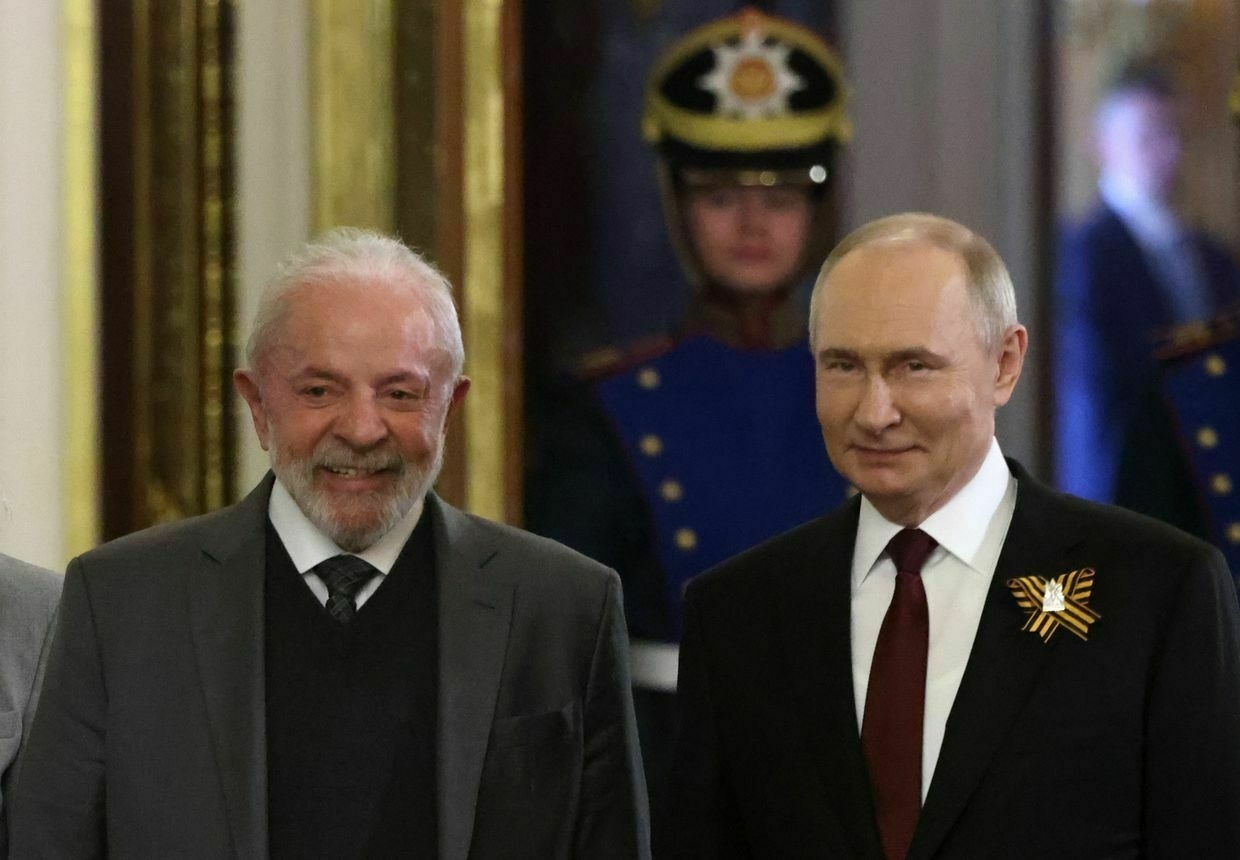
Russian President Vladimir Putin has decided not to attend the upcoming BRICS summit in Brazil due to an arrest warrant issued by the International Criminal Court (ICC), Russian president’s foreign policy aide Yuriy Ushakov said on June 25.
“This is related to certain difficulties in the context of the ICC’s demands, as you know, and precisely in this context, the Brazilian government was unable to take a clear position that would allow our president to participate in this meeting,” Ushakov said.
Brazil is a member of the ICC and a signatory to the Rome Statute, meaning it is obliged to arrest Putin if he enters the country.
The BRICS summit, which is scheduled to take place on July 6–7, will be attended by Russian Foreign Minister Sergey Lavrov, according to Ushakov. Putin is expected to participate remotely via video.
BRICS, composed of Russia, China, India, Brazil, and other nations, is a group of emerging economies often portrayed as a counterweight to the Western-led world.
The ICC issued a warrant for the Russian leader’s arrest in March 2023 over the illegal deportation of Ukrainian children during Russia’s full-scale invasion of Ukraine.
In November 2024, Putin skipped the G20 summit in Brazil and sent Lavrov instead.
Earlier in June, Moscow said that Putin had received an official invitation to attend the G20 summit in South Africa, another ICC member state. The event is scheduled to take place in Johannesburg from Nov. 22 to 23.
In September 2024, Putin made a rare visit to Mongolia, which is also a signatory of the ICC, prompting criticism over the non-enforcement of the warrant.
‘It’s possible’ — Trump on Putin’s territorial ambitions beyond Ukraine“I consider him (Russian President Vladimir Putin) a person I think is misguided,” U.S. President Donald Trump said speaking at a NATO press conference in The Hague on June 25.The Kyiv IndependentKateryna Denisova
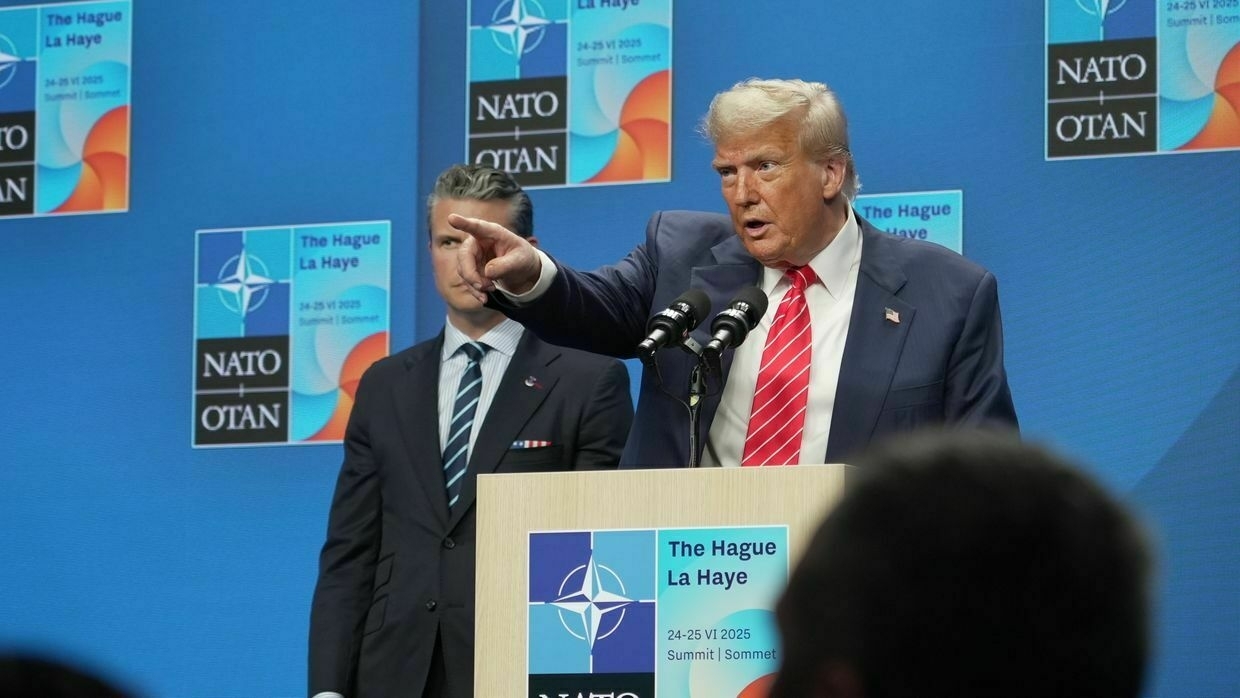
Trump signals support for sending more Patriot missiles to Ukraine
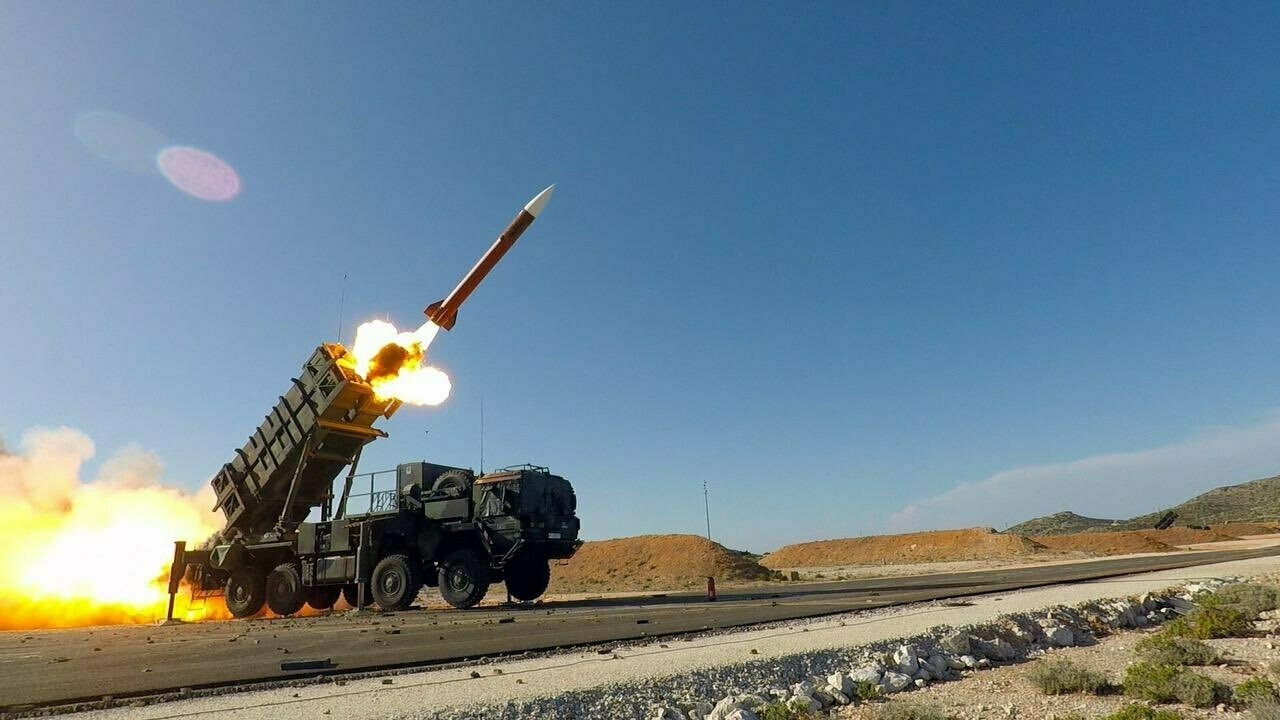
Washington will “see” whether it can supply Kyiv with additional missiles for its Patriot air defense systems, U.S. President Donald Trump said during the NATO summit in The Hague on June 25 as Russia escalates its air strikes against Ukraine.
“They (Ukraine) do want to have the anti missiles, as they call them, the Patriots, and we’re going to see if we can make some available,” Trump said.
“They are very hard to get. We need them too. We are supplying them for Israel, and they are very effective."
After the meeting with Trump earlier in the day, Zelensky said that the two discussed the purchase of American air defense systems to shield Ukrainian cities and critical infrastructure.
In recent weeks, Moscow has intensified its drones and missiles strikes. As NATO leaders gathered for the summit, Russia launched an attack on the city of Dnipro, killing at least 19 people and injuring more than 300 others.
“Ukraine is ready to buy this equipment and support American weapons manufacturers. Europe can help. We also discussed the potential for co-production of drones. We can strengthen each other,” Zelensky added.
Previously, despite Kyiv’s appeals, Trump has dismissed the request, accusing Ukraine’s president of “always looking to purchase missiles” and falsely blaming Ukraine for provoking the war.
The Patriot is a high-precision, U.S.-made surface-to-air missile platform capable of intercepting aircraft, cruise missiles, and ballistic threats. Zelensky has repeatedly said Ukraine needs at least seven more systems to defend its most at-risk regions.
In early June, he confirmed that Trump’s administration diverted 20,000 anti-drone missiles originally intended for Ukraine to American forces in the Middle East.
Since the start of Russia’s full-scale invasion, Moscow has launched 28,743 Shahed-type drones at Ukraine — with 2,736, or roughly 9.5%, fired in June 2025 alone, Zelensky said.
‘It’s possible’ — Trump on Putin’s territorial ambitions beyond Ukraine“I consider him (Russian President Vladimir Putin) a person I think is misguided,” U.S. President Donald Trump said speaking at a NATO press conference in The Hague on June 25.The Kyiv IndependentKateryna Denisova
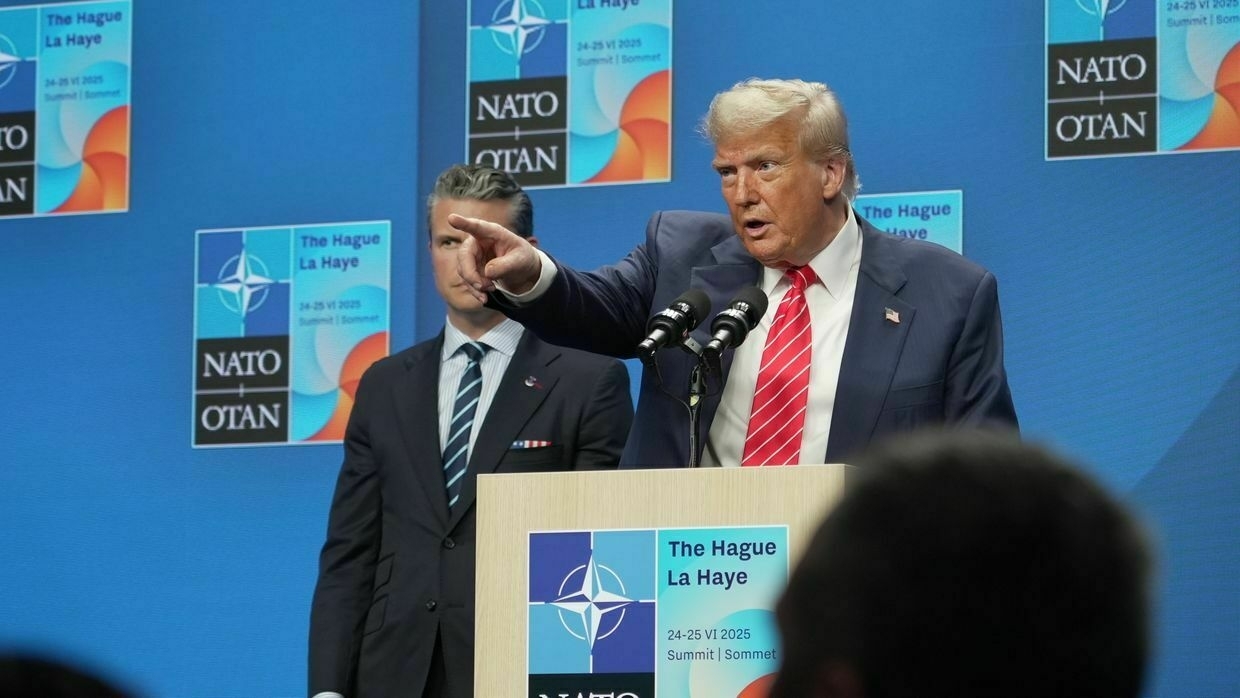
Russian military court convicts 184 Ukrainian servicemen involved in Kursk operation
Judges from Russia's 2nd Western District Military Court delivered verdicts for 184 Ukrainian servicemen captured during the Ukrainian Armed Forces' (AFU) incursion into the Kursk region, reports Mediazona.
The cases against those captured in Kursk stand apart from other terrorism-related cases in Russian courts due to a unified charge levied against all defendants – "committing a terrorist act by a group resulting in severe consequences." Since November 2024, a total of 159 cases involving 267 individuals have been brought to this court, the outlet specifies, though the sentences remain undisclosed.
As an example, Mediazona cites the case of AFU Junior Lieutenant Yevhen Goch, found guilty of terrorism by the Russian military court. The charge stems from his actions on October 8, 2024, when he allegedly entered Kursk, positioned himself near Olgovka, and spent three weeks hindering civilian evacuations and intimidating them through weapon display and use. Goch surrendered after being injured on October 27.
The Ukrainian Armed Forces launched an extensive military operation in Kursk on August 6, 2024, marking the first offensive of its kind since Russia's aggressive war against Ukraine began in February 2022. For an in-depth look, click here. By the third day of the Ukrainian operation, counter-terrorism measures were enforced in Belgorod, Bryansk, and Kursk. Then-governor Alexei Smirnov announced on August 12 that over 120,000 people had been evacuated, acknowledging AFU control over 28 localities in the area.
Russia’s Ministry of Defense announced the region's liberation at the end of April 2025, prompting a response from Ukraine’s General Staff that claimed the defensive operation in specific Kursk territories continues. More details here. TASS reported at the time that Russian forces captured over 500 Ukrainian soldiers in Kursk.